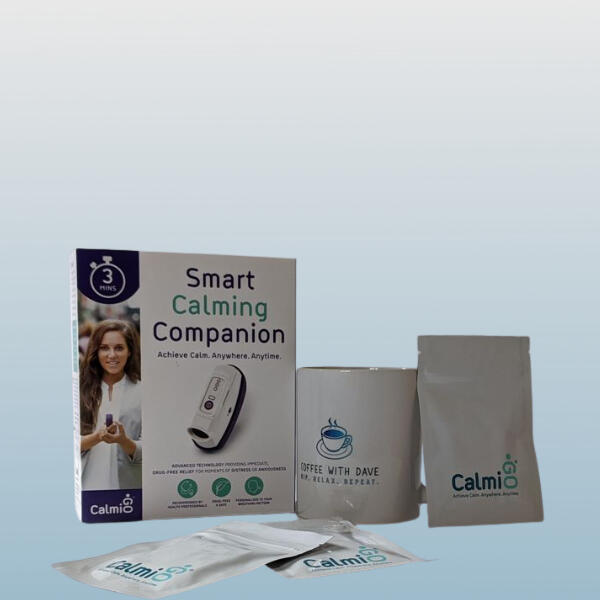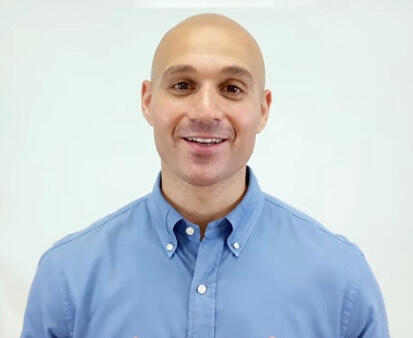Let's Connect!
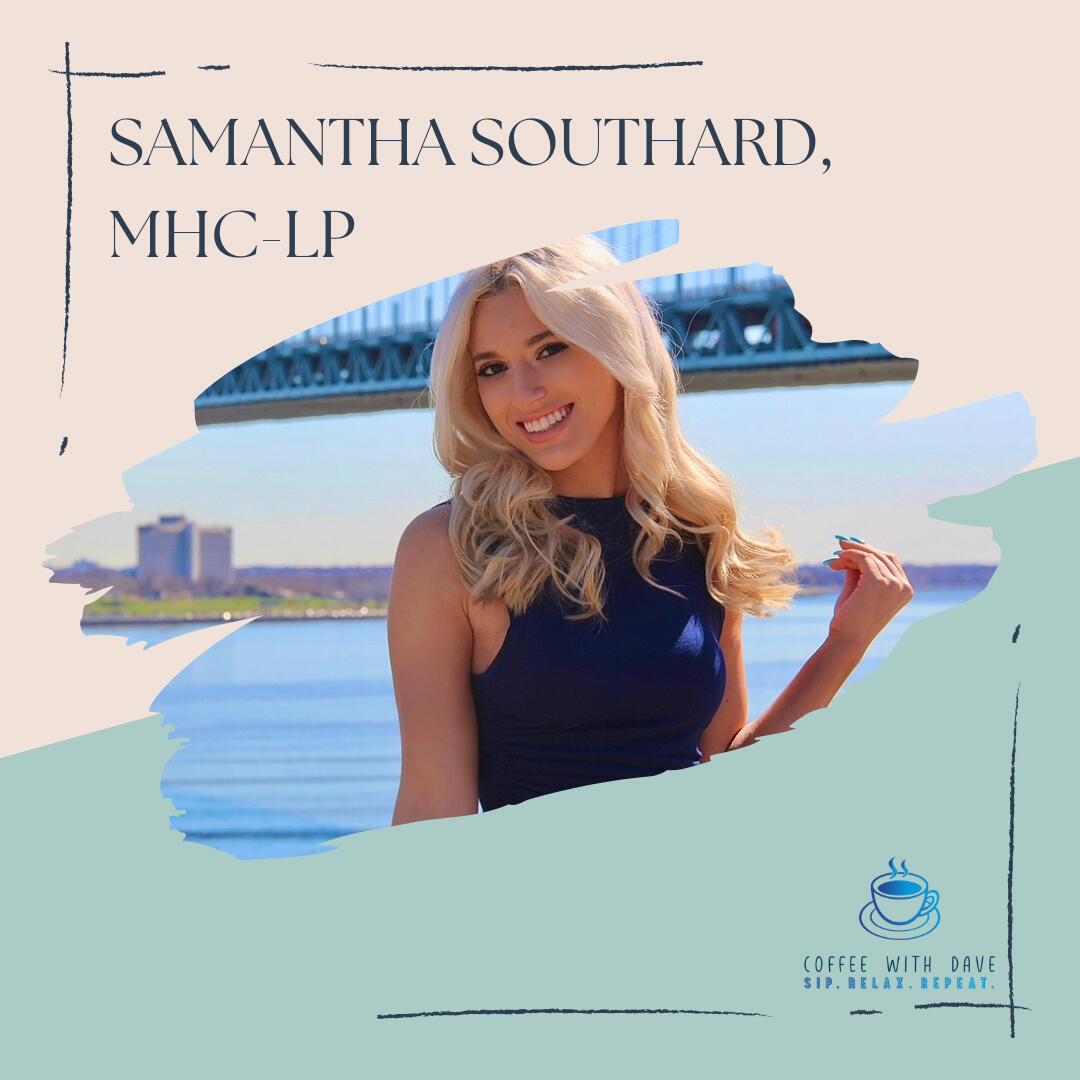
Samantha Southard, MHC-LP
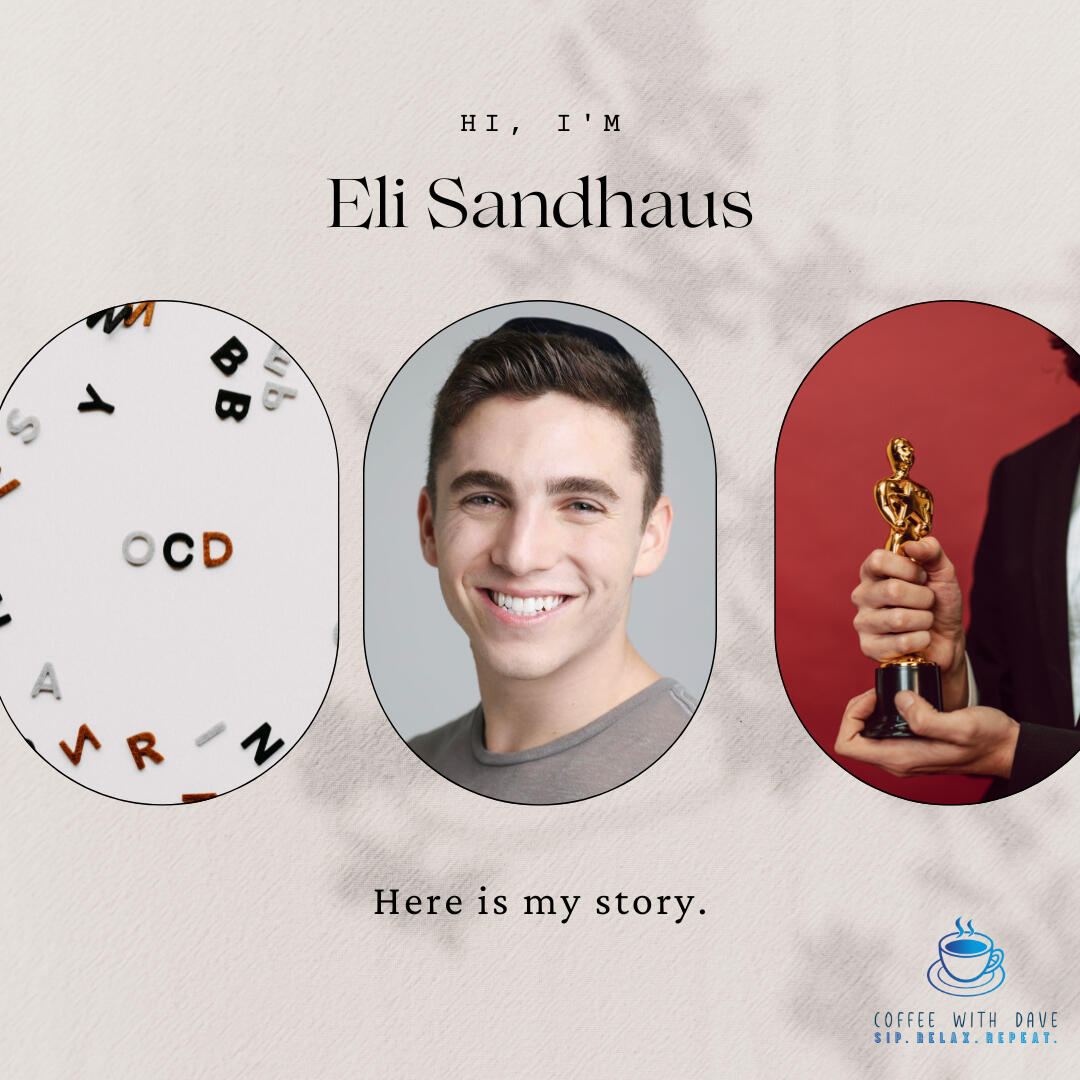
Eli Sandhaus
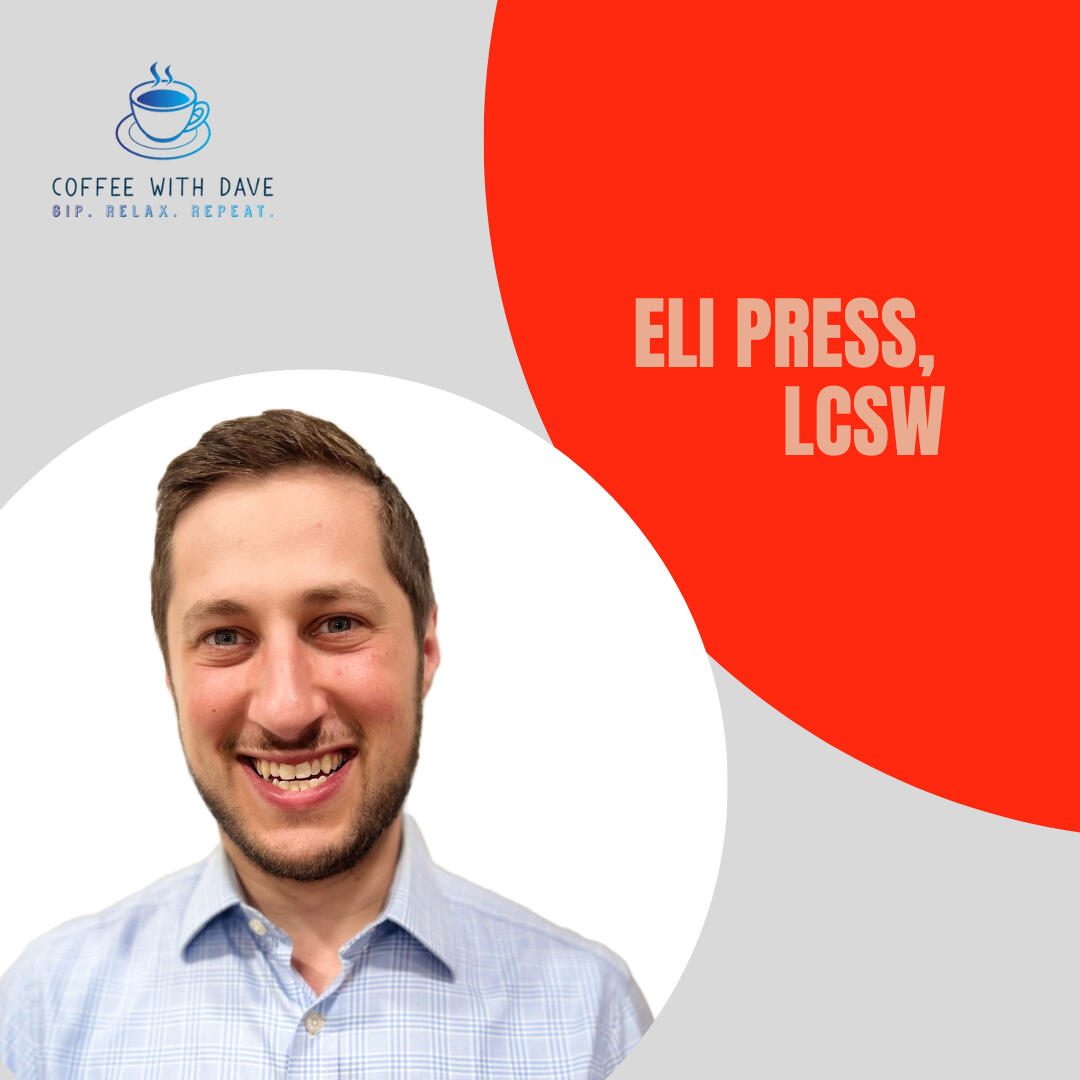
Eli Press, LCSW
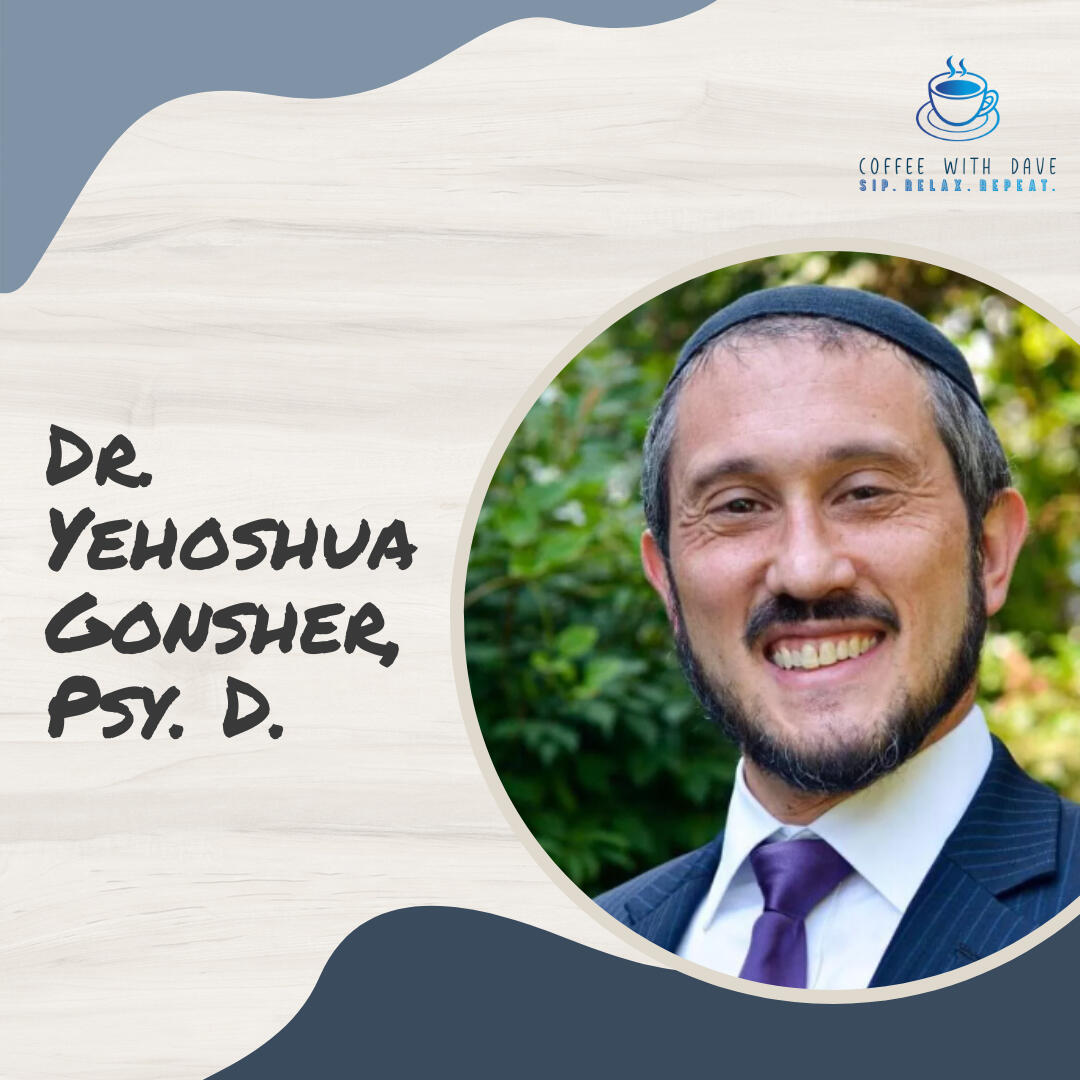
Dr. Yehoshua Gonsher, Licensed Clinical Psychologist

Jenna Overbaugh, MA, LPC
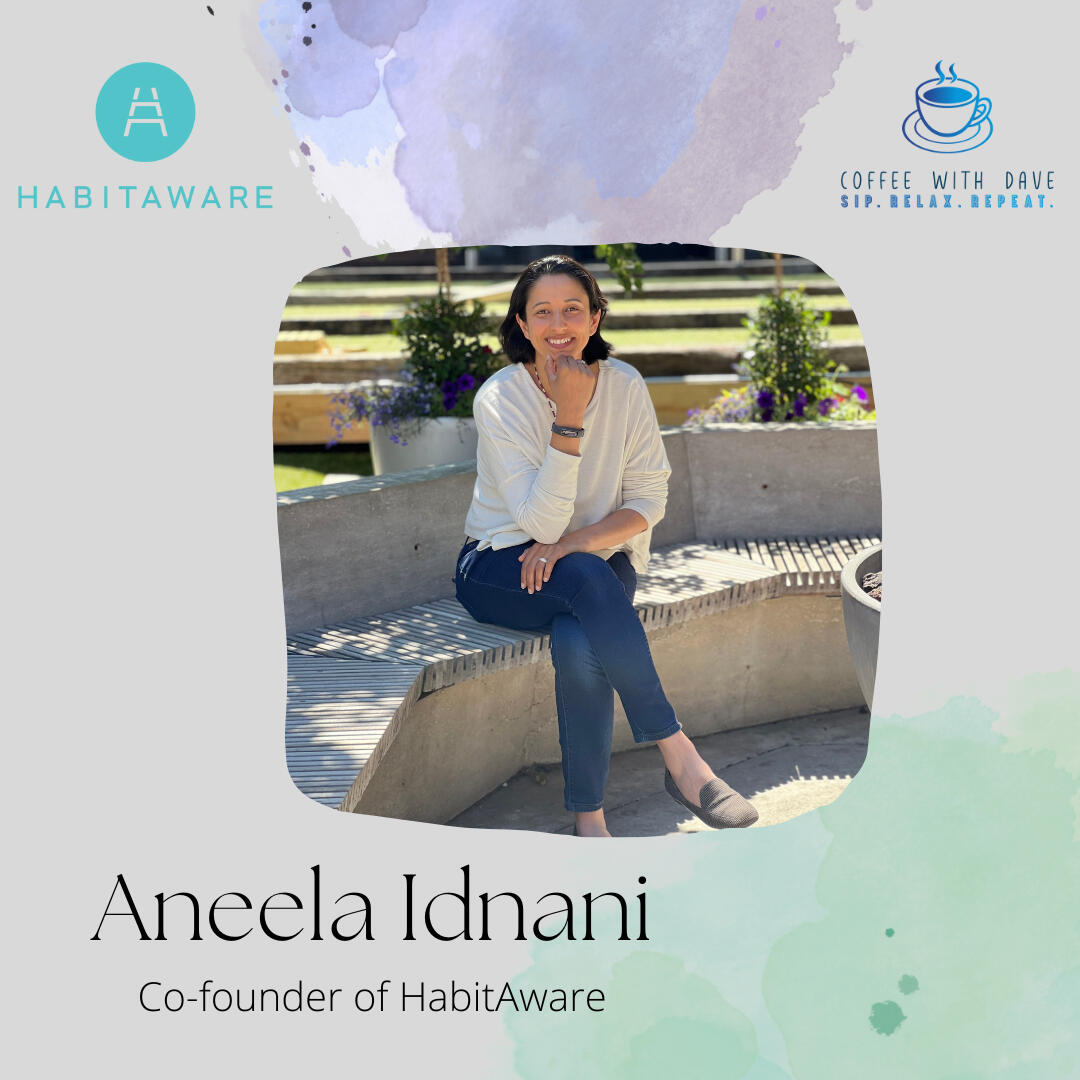
Aneela Idnani - HabitAware
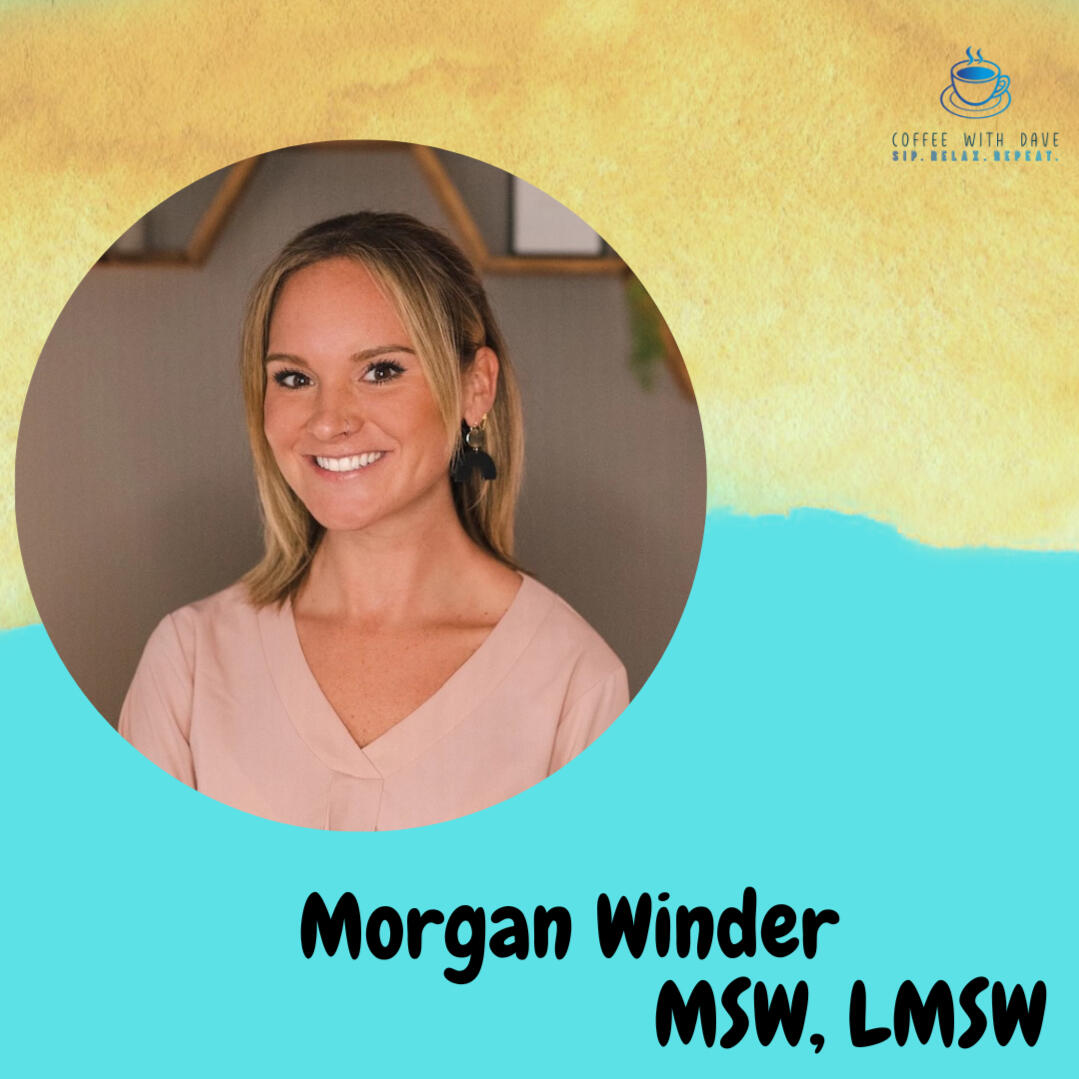
Morgan Winder, MSW, LMSW

Universal Or Unique?
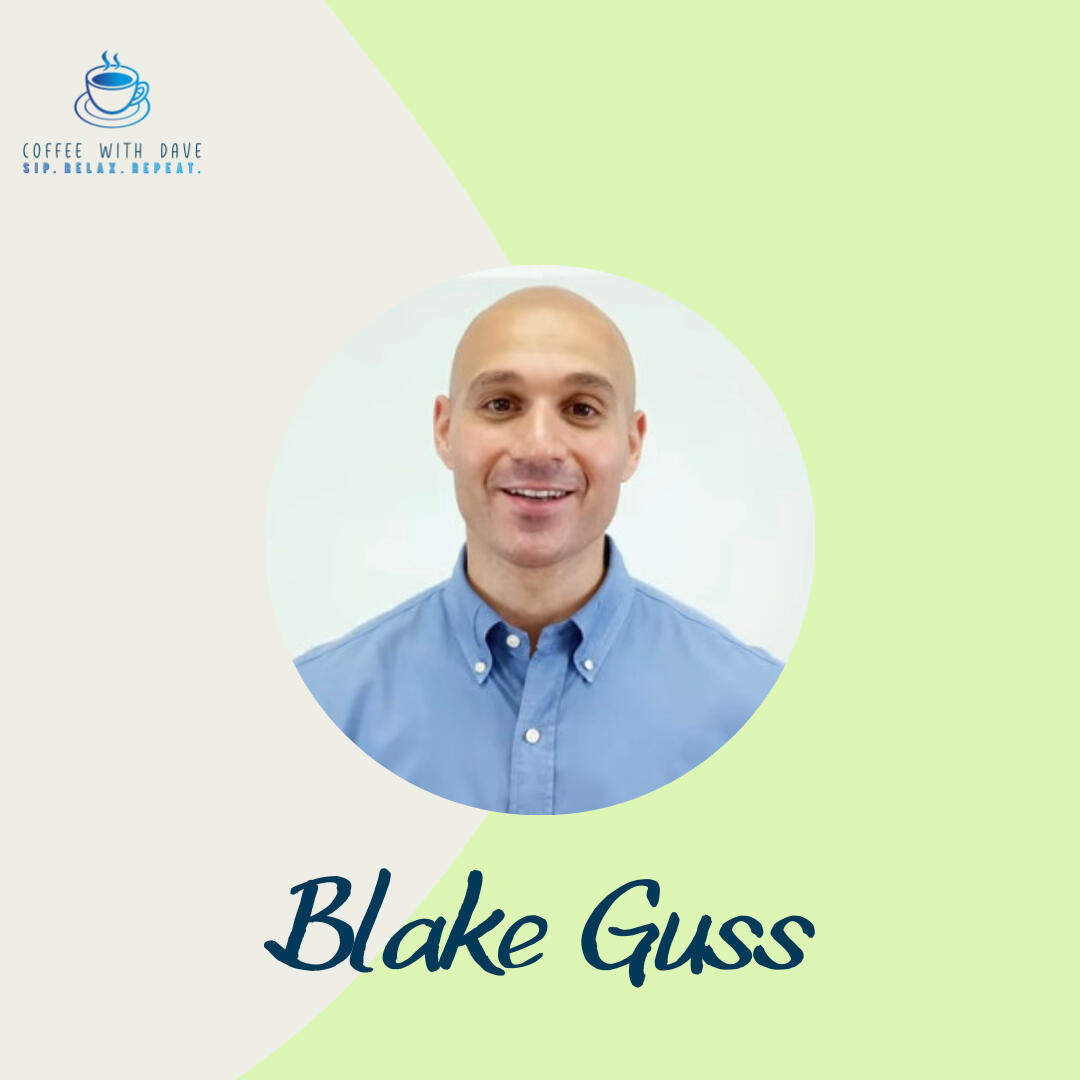
Blake Guss

Marina Yanay-Triner, Compassionate Somatic Coach

Judgmental Health

Sharmila Acharya, PT, CYT, CNC

Selene Burley, LMFT

CalmiGo

Hanna Pratico, LMFT

Liana Ross, LMHC, CASAC
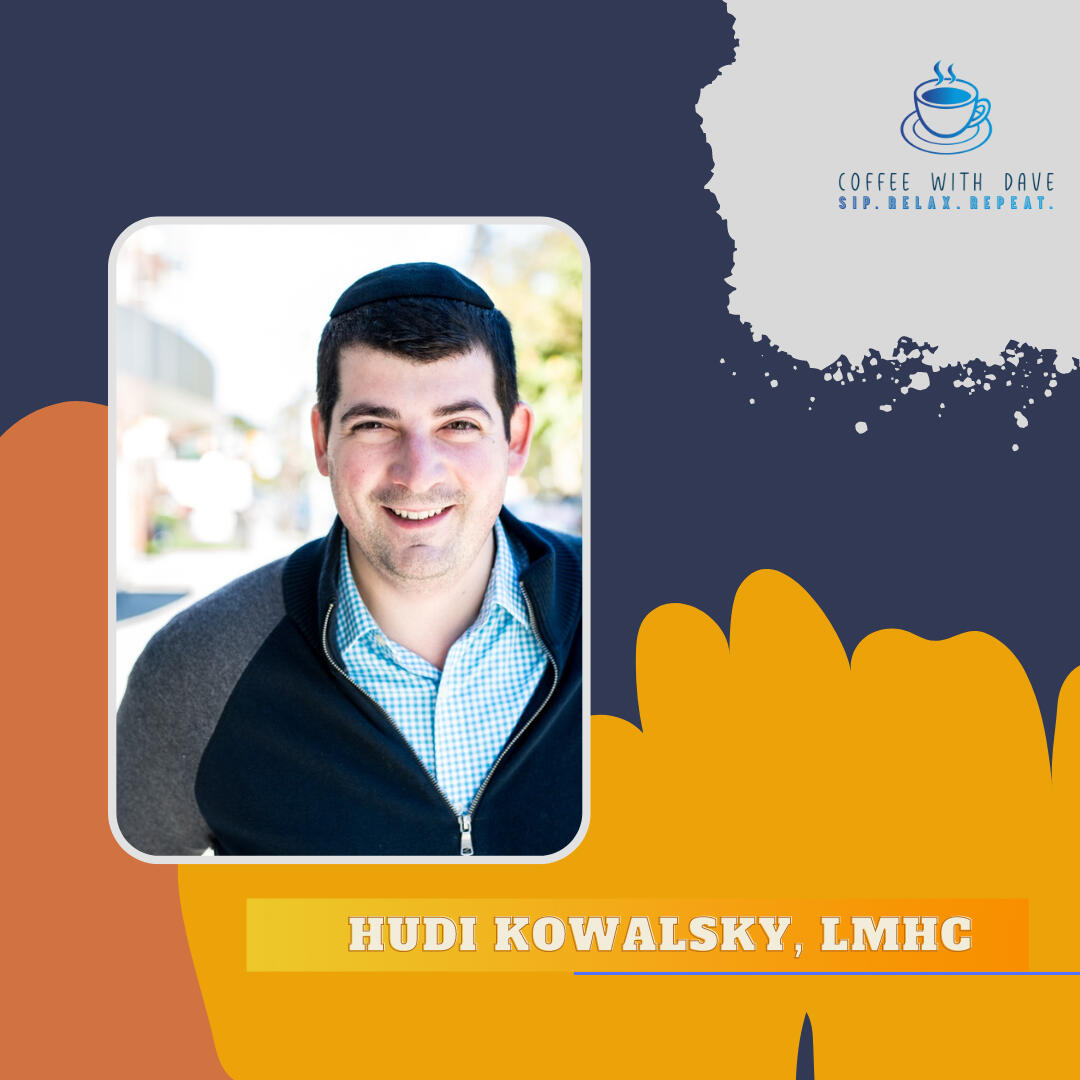
Hudi Kowalsky, LMHC

Hannah Paull, Psy. D.

Valerie - CEO of Halsa
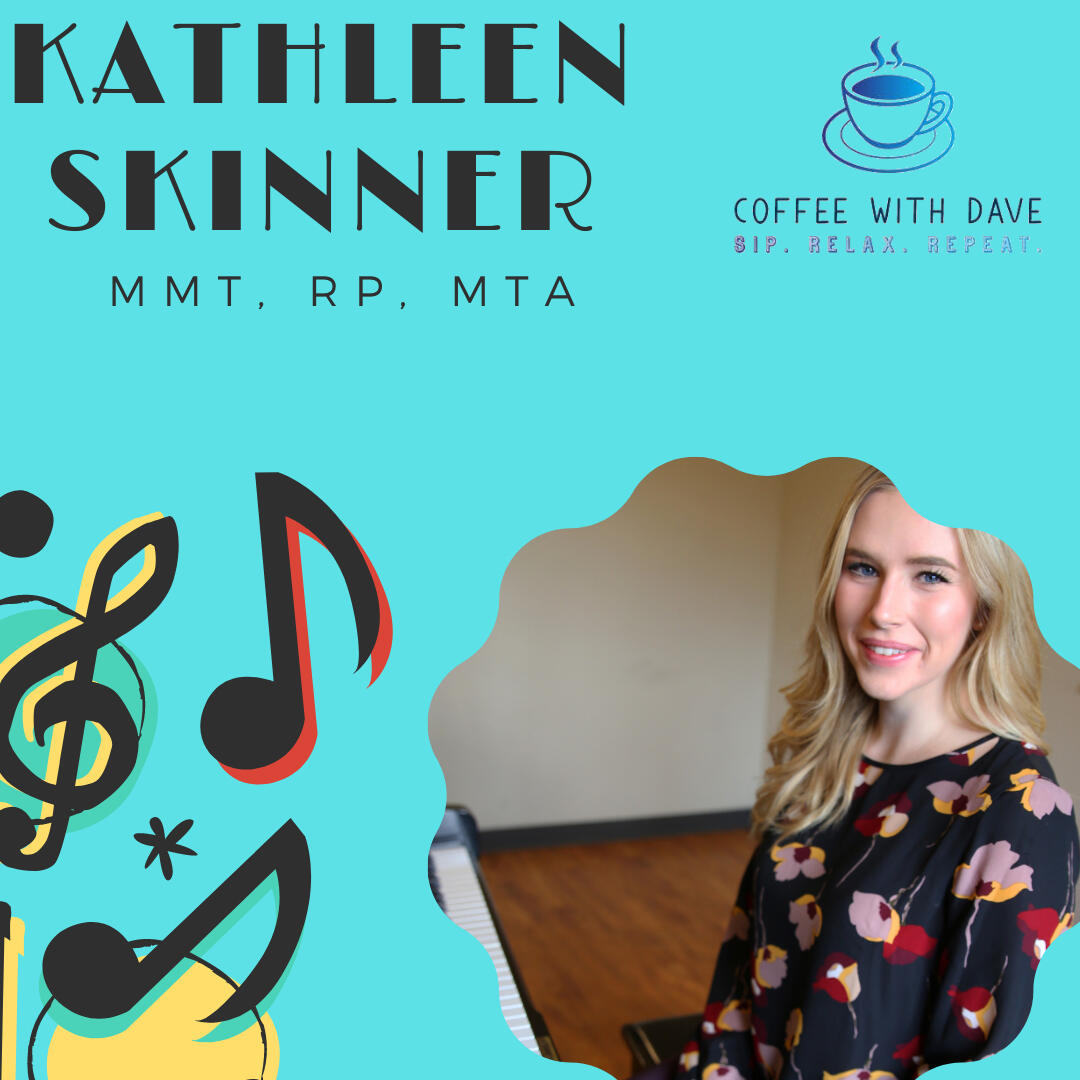
Kathleen Skinner, MMT, RP, MTA

Calm Bean Coffee
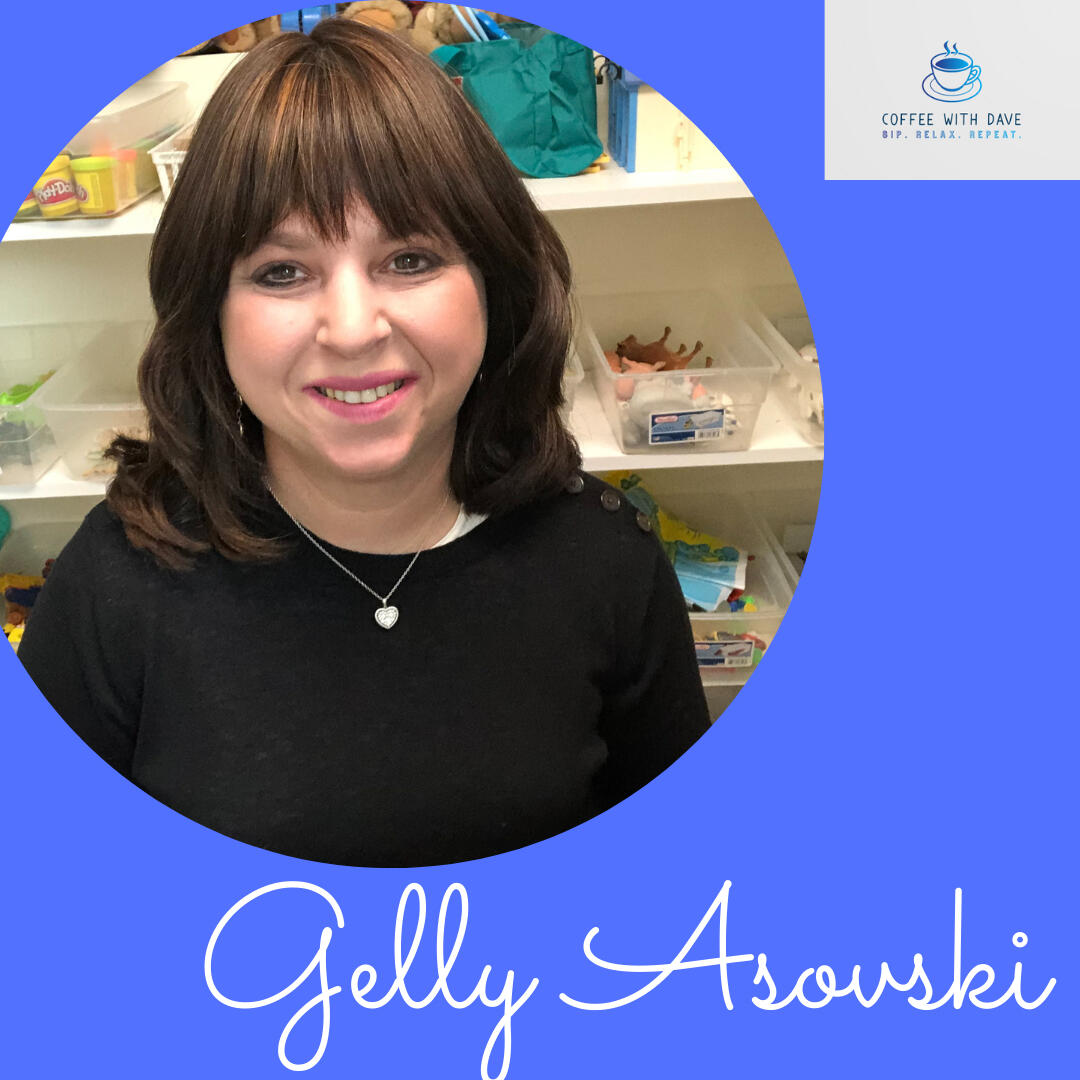
Gelly Asovski, LCSW-R, RPT-S
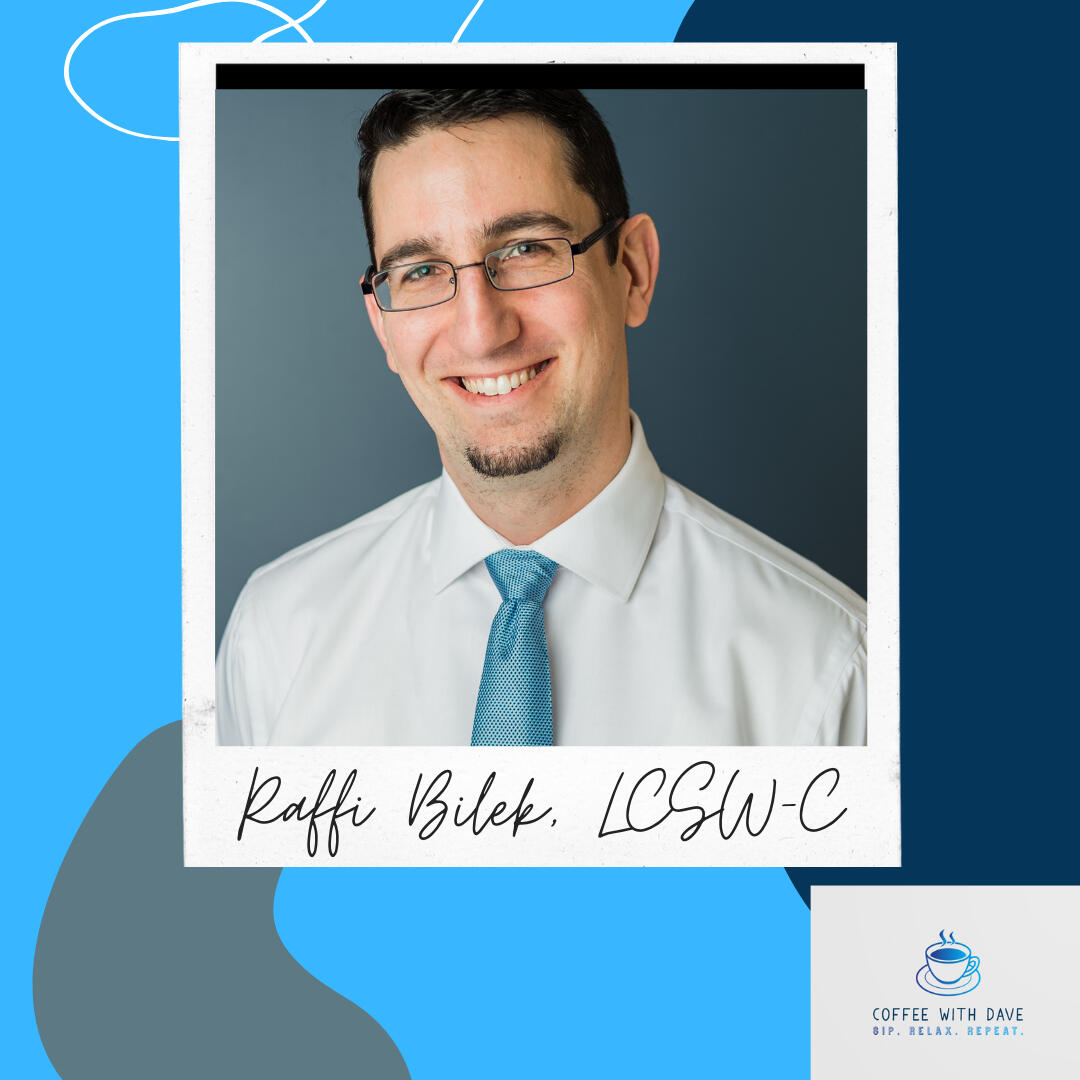
Raffi Bilek, LCSW-C
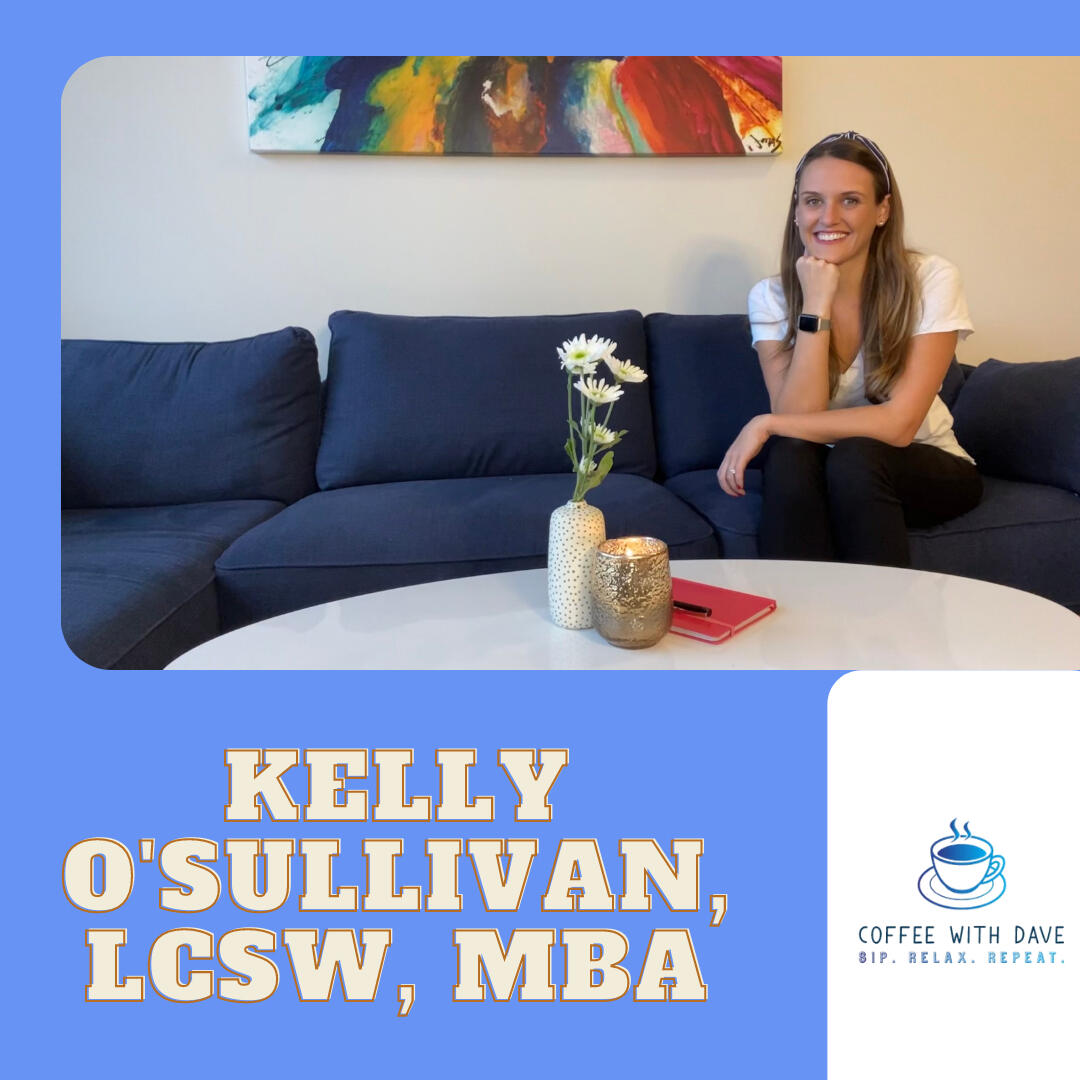
Kelly O'Sullivan, LCSW, MBA
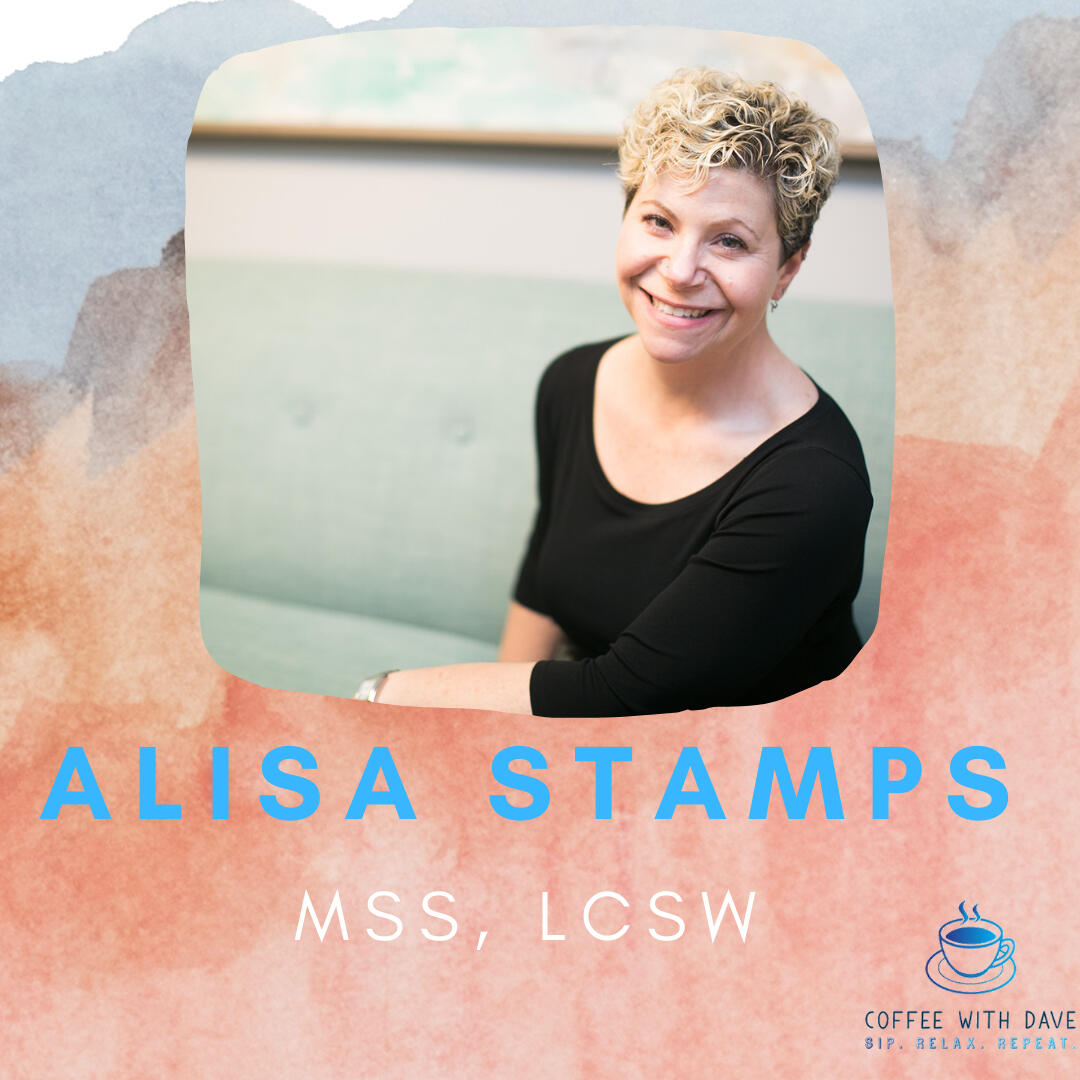
Alisa Stamps, MSS, LCSW

Sana I. Powell, M.A., LPC
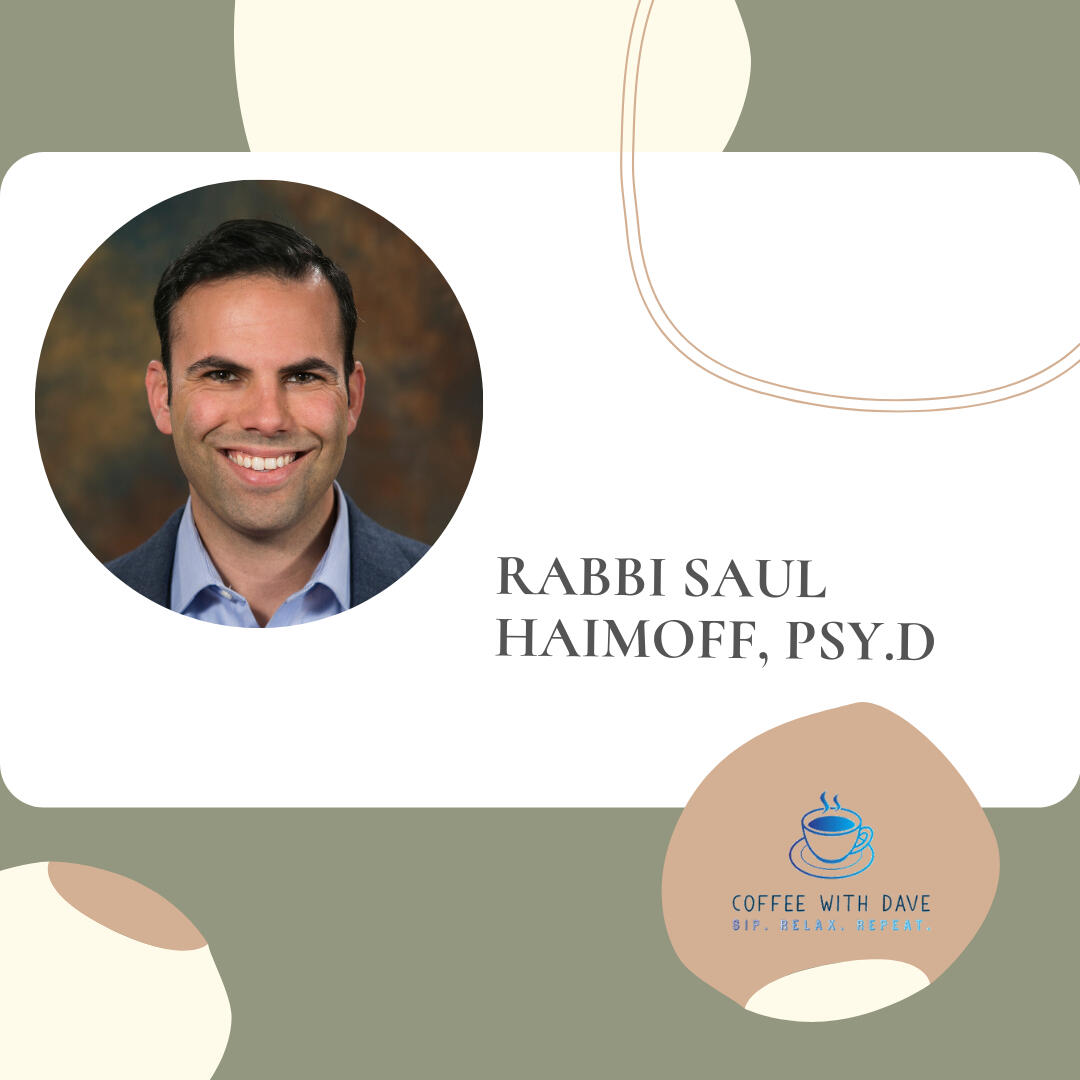
Rabbi Saul Haimoff, Psy. D.
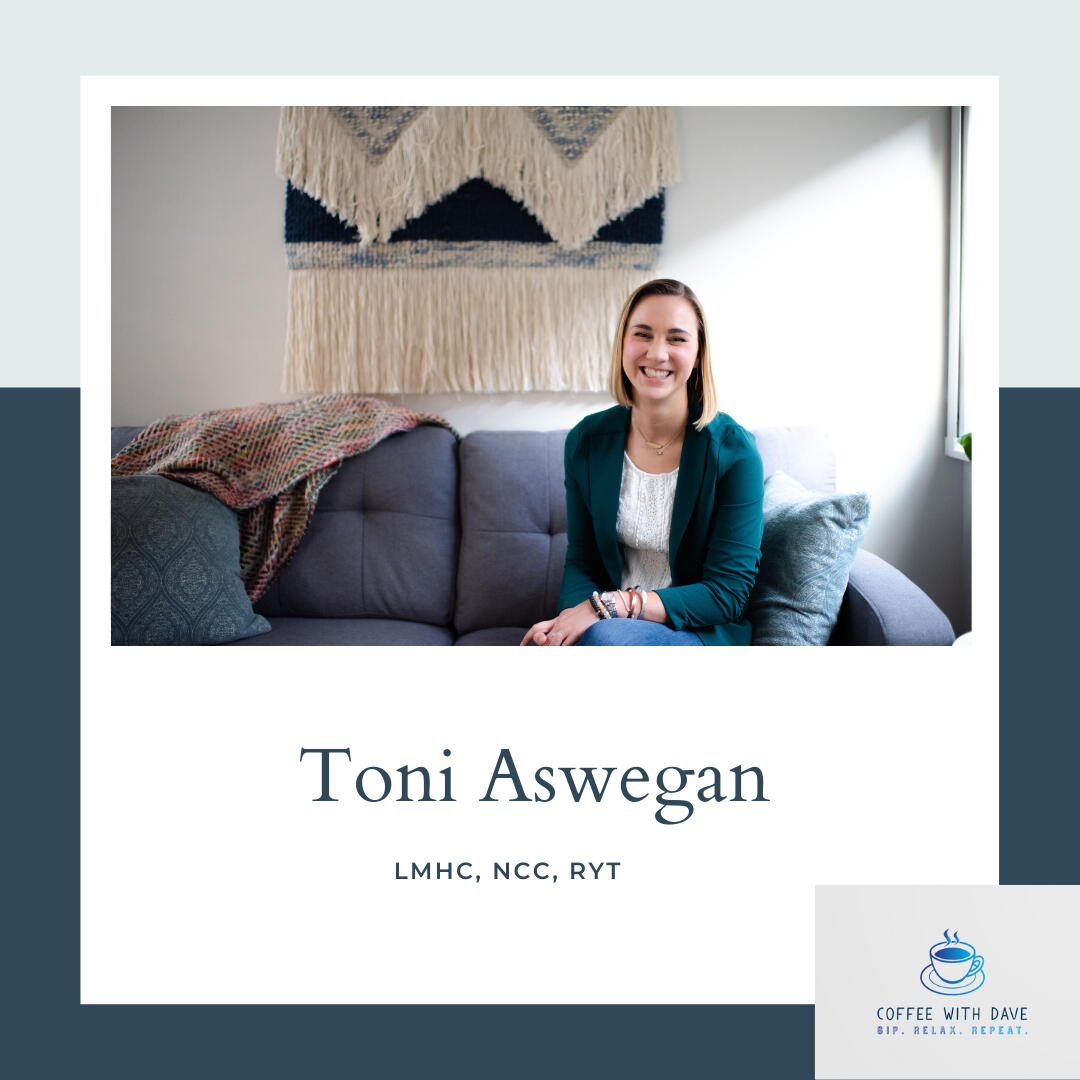
Toni Aswegan, LMHC, NCC, RYT
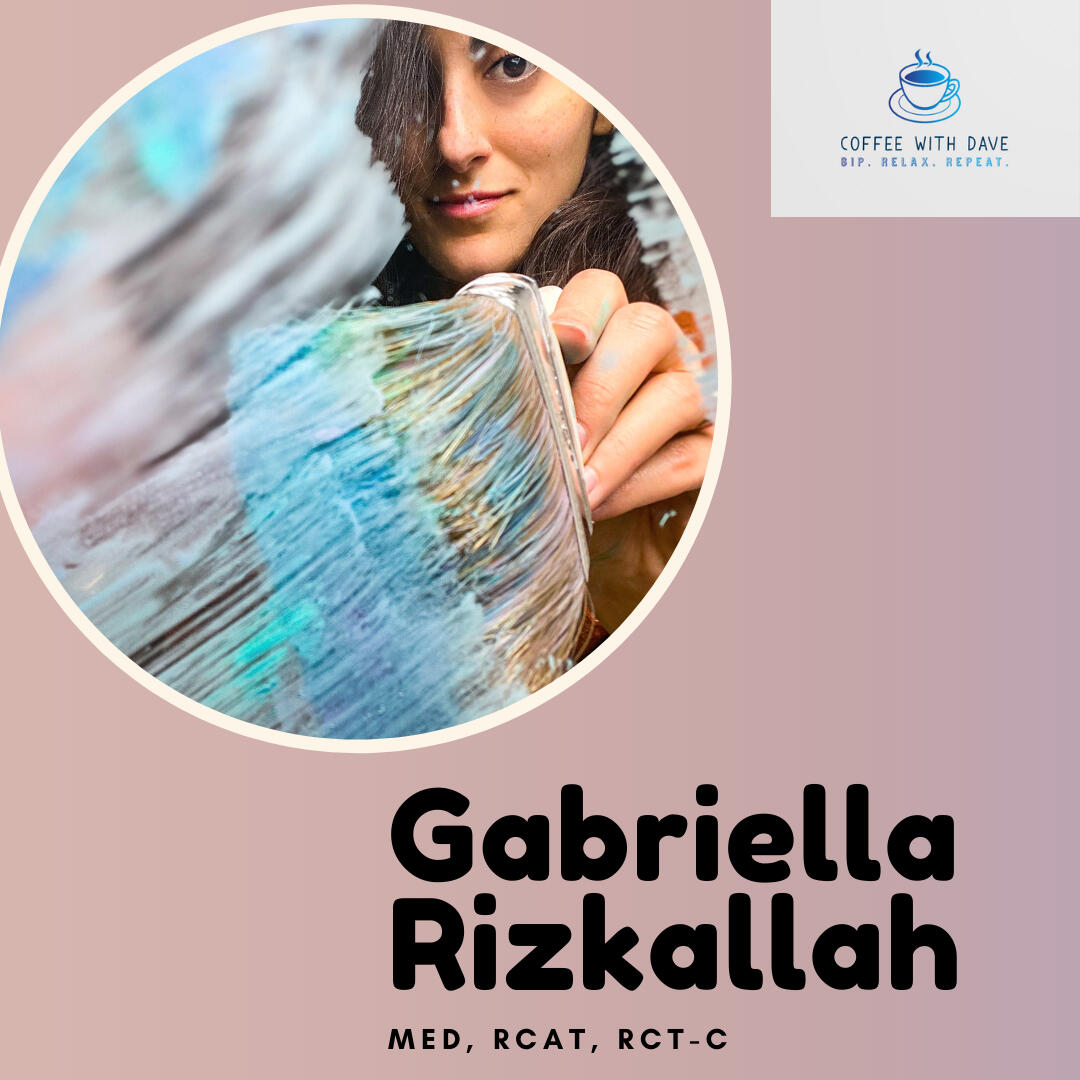
Gabriella Rizkallah, M. Ed, RCAT, RCT-C
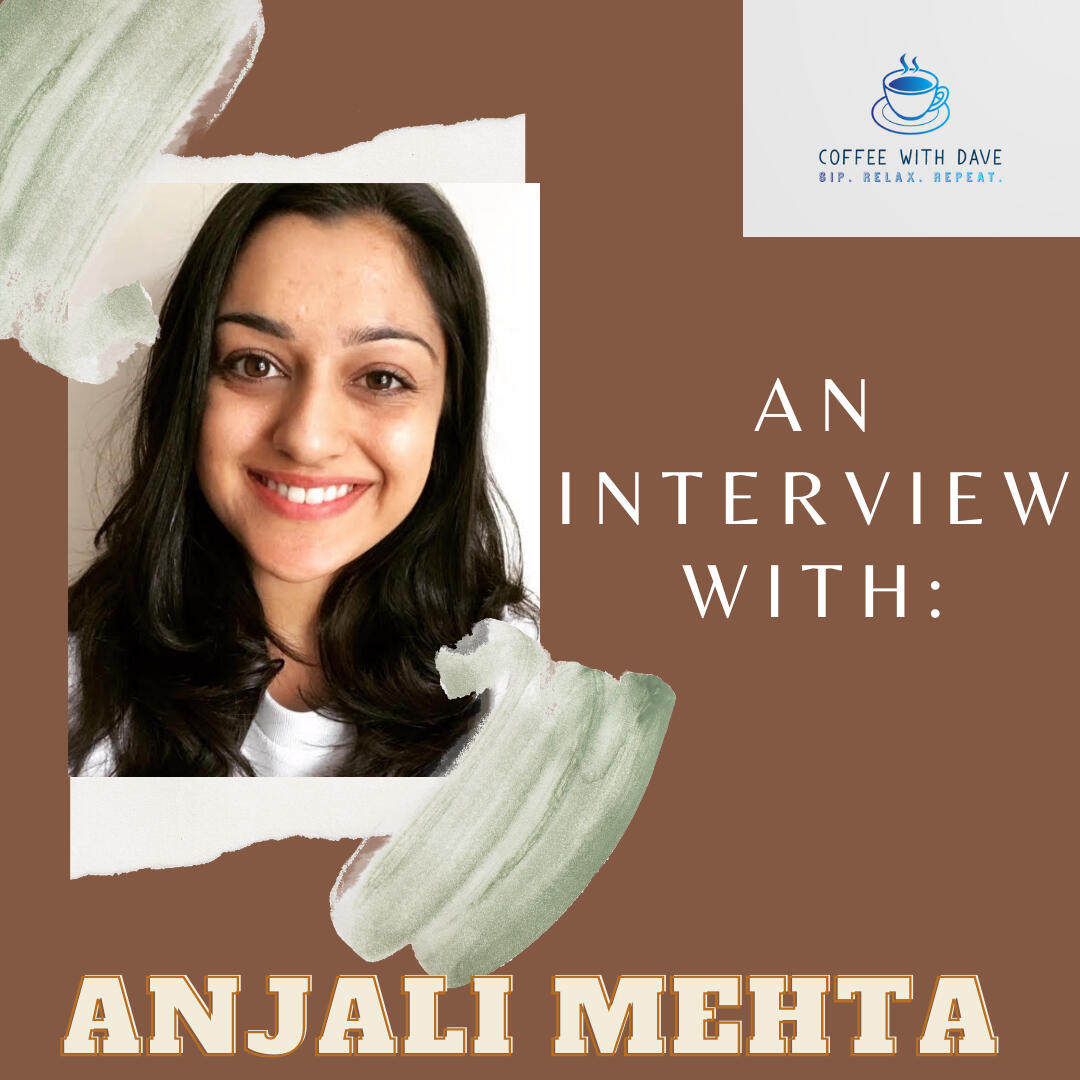
Anjali Mehta, BSc (Hons) PGDip AFHEA

Gabriella Boeger, MS, LMFT
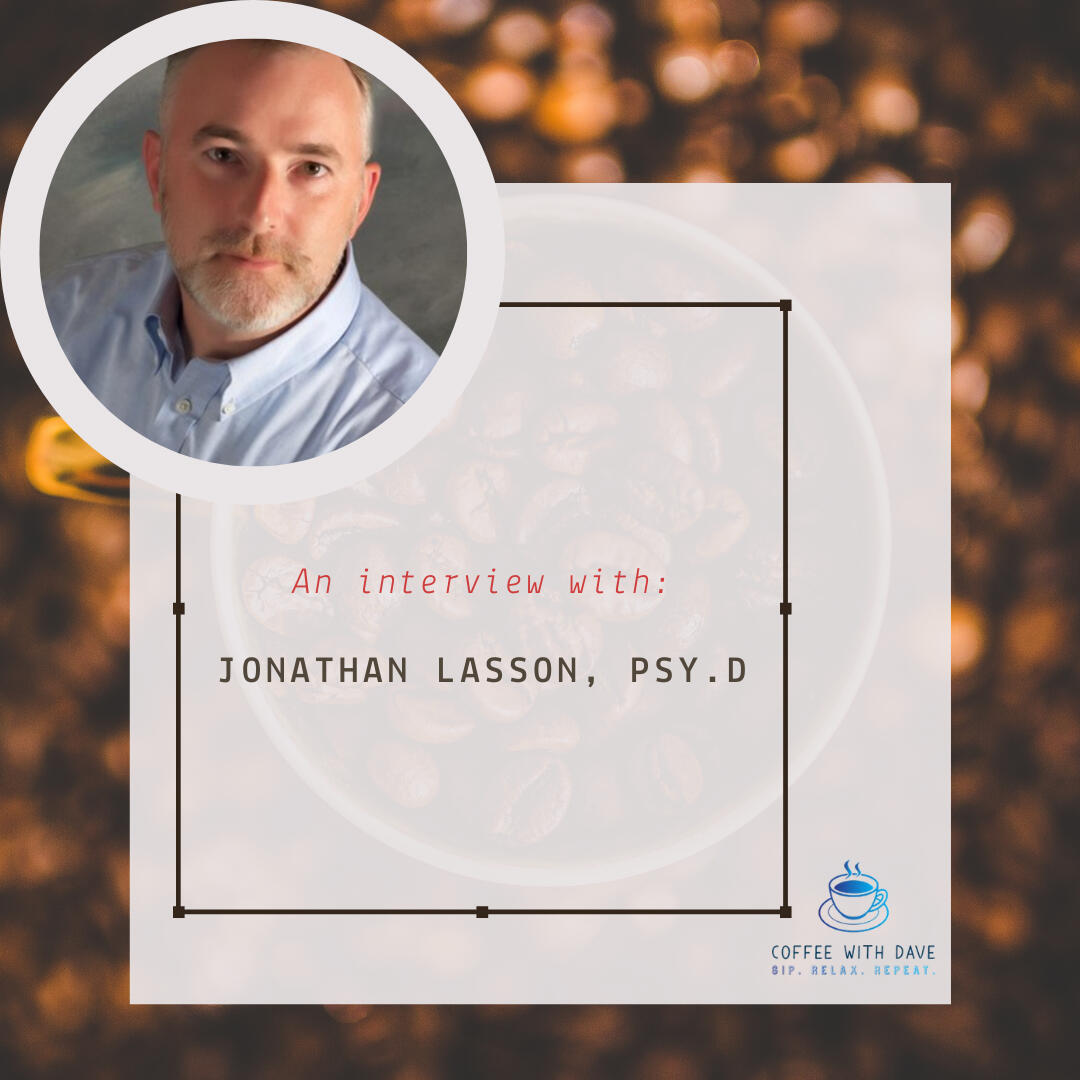
Jonathan Lasson, Psy. D.
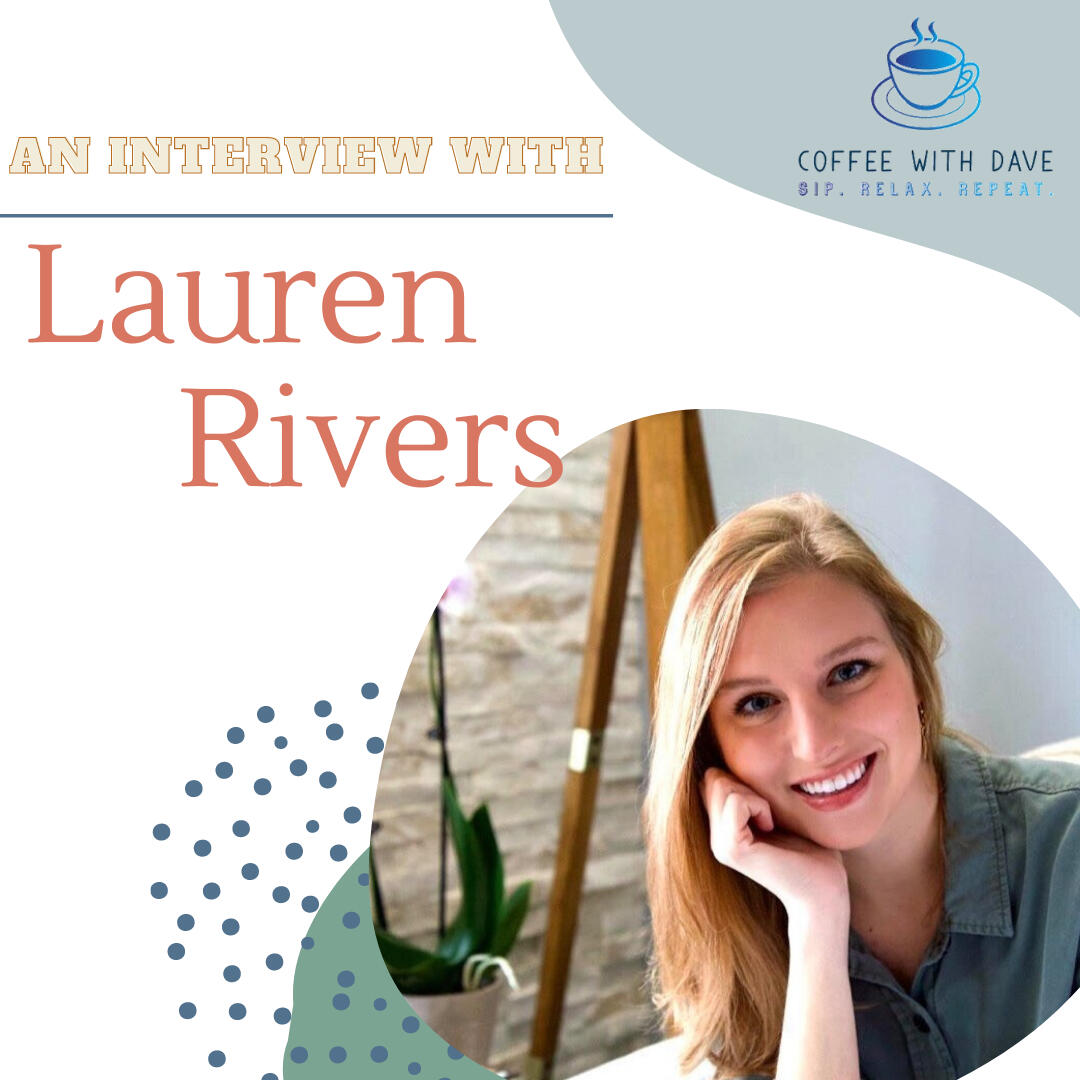
Lauren Rivers, LPC, CTP

The Coffee with Dave blog is hosted by David Listhaus, LCPC.David is the owner and director of Calm Mind Therapy Center, LLC located in Baltimore, MD.The Coffee with Dave blog features posts covering a wide range of topics within the mental health field as well as interviews with mental health professionals and companies around the globe.So go grab your mug and sip, relax and repeat!
Would you like to be featured on the Coffee with Dave blog?
If you are in a mental health-related field or have a mental health-related article, fill out the form below !
We look forward to hearing from you!
Looking for a good read? Check out these favorites!(Click on the book images to shop!)

"What to Do When You Worry Too Much" by Dawn Huebner, Ph.D.
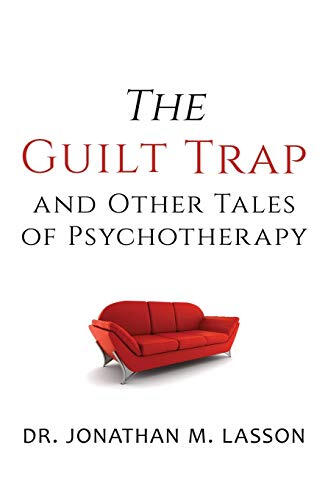
"The Guilt Trap" by Dr. Jonathan Lasson

"Out of the Cracks" by Dr. Jonathan Lasson
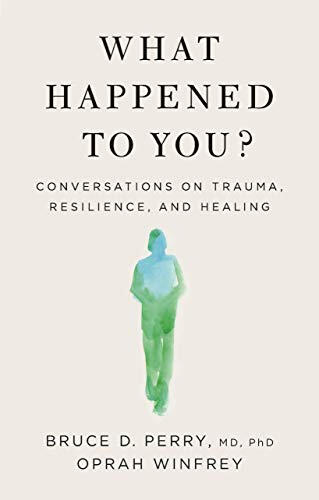
"What Happened To You" by Bruce Perry and Oprah Winfrey

"Self Therapy" by Jay Early
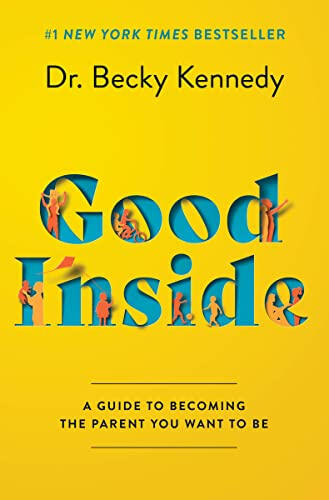
"Good Inside" by Becky Kennedy

"Celebrate Your Feelings" by Lauren Rivers
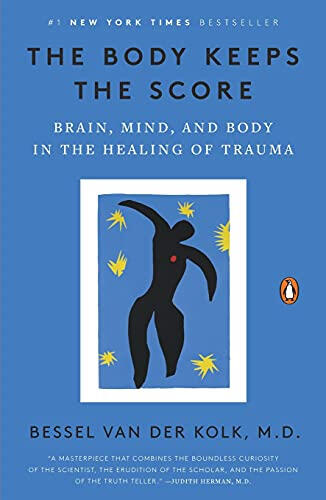
"The Body Keeps the Score" Bessel van der Kolk

"The Five Love Languages" by Gary Chapman

"How to Talk so Little Kids Will Listen" by Joanna Faber & Julie King

"The Myth of Normal" by Gabor Mate

"Scattered Minds" by Gabor Mate

"Mindfulness for Beginners" by Jon Kabat-Zinn

"The Road Less Traveled" by M. Scott Peck

"The Gift of Therapy" by Irvin Yalom

“Behave” by Robert Sapolsky

“Outliers” by Malcolm Gladwell
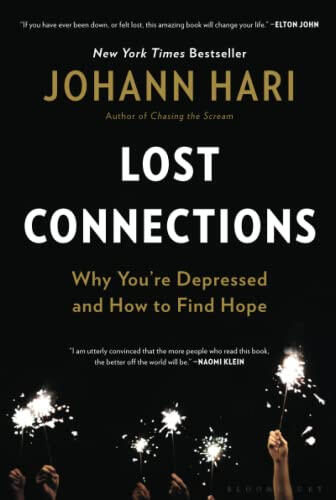
"Lost Connections" by Johann Hari

"Handbook of Torah and Mental Health" by David Rosmarin and Rabbi Saul Haimoff
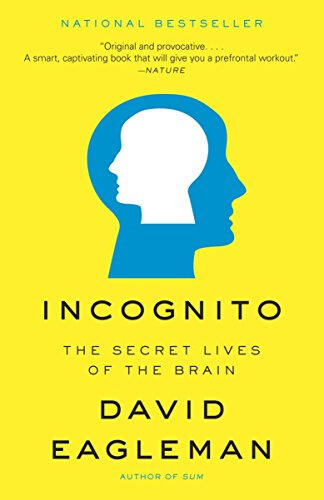
“Incognito: The Secret Lives of the Brain” by David Eagleman

"The F-ck It Diet" by Caroline Dooner

"Men are from Mars, Women are from Venus" by John Gray

"Mastering Adulthood" by Lara E. Fielding

"Buy Yourself the F-cking Lilies" by Tara Schuster

"Life Will Be the Death of Me" by Chelsea Handler

“Atomic Habits” by James Clear
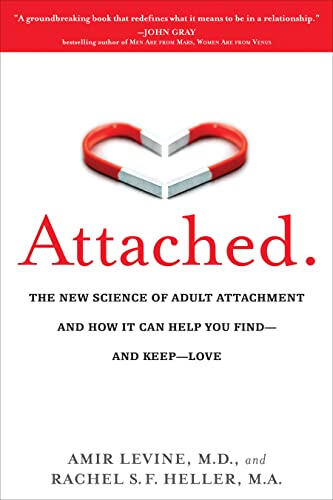
"Attached" by Amir Levine and Rachel S. F. Heller

"Adult Children of Emotionally Immature Parents" by Lindsay C. Gibson

"How to do the Work" by Nicole LePera

"The Four Agreements" by Don Miguel Ruiz

"The Alchemist" by Paulo Coelho

“Wired For Love” by Stan Tatkin

"The Six Pillars of Self-Esteem" by Nathaniel Branden

"The Courage to Create" by Rollo May

"Emotional Intelligence" by Daniel Goleman
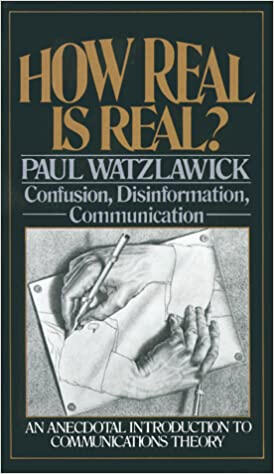
"How Real is Real?" by Paul Watzlawick

The Mental Health Clinician's Workbook by James Morrison
Beyond Discipline: Building Emotional Bridges With Your ChildYour daughter one day approaches you and asks if she can have a spoonful of ice cream. You know it’s before dinnertime and the answer will be no. But just then, before you turn to your daughter and let her know her request will be denied, you pause. You know telling her “No” outright is the response to her behavior, but not to her feelings. So you say the following:
“Michelle, you’d really like to have that strawberry ice cream we bought yesterday…” As your words travel to Michelle’s ears, she lets out a soft smile. “And you’d put those pink-and-white sprinkles on too… Maybe even a few drizzles of chocolate syrup…” Michelle’s smile has only widened at this point. “And I also remember that we got the gummy bears … You’d love that too. I know you would.”
At this point, Michelle is listening intently and quietly, her attention riveted to your every word. But then you let her know that such a wonderful treat will not be enjoyed now before dinner.
“Right now it’s before dinner, Michelle. I know you want the ice cream now, but dinner first, then dessert. I know you understand. As you as you finish your dinner, your dessert will be on the way!”
Haim Ginott got right to the heart of things when he said, “Accept all feelings; not all behavior.” The reason the above feels so satisfying to read (and all the more so, to have it said to you!) is because it’s exactly that. It honors how you feel inside. You have a want, a desire, a wish, a dream, and your parent lets you know that they completely understand. And what’s more, they let you experience the full motion of your feelings. Your imagination enjoys what you are conjuring up, and you feel the freedom to feel exactly the way you are.
Behavior, on the other hand, doesn’t have full license. There are acceptable actions, and not every feeling can or should be acted on. The greater wisdom of the parent prevails in this situation and no matter how strong the feeling for ice cream may be, it does not translate into the action of eating it before dinner.
When we hear this, it is common to think, “I’m not sure I like the way this sounds. You’re fooling me into feeling through something, only to deny it at the end!” To put this into perspective, let’s listen to the other way this conversation could ensue.
“Michelle, dinner is in just a few minutes. You can’t have ice cream now, but after dinner, you’re welcome to have it.”
How does this feel to you? Not nearly as satisfying as in the first dialogue. It is true that the result is the same—no ice cream—but the radical difference is in the acceptance of your feelings, which is noticeably missing in the second example.
This doesn’t mean that we are to indulge on our emotions or that of our children’s. Rather, it does mean that we will bypass much conflict when we acknowledge the emotions behind the behavior. Every behavior is a desired behavior, and when we only focus on the behavior but miss out on the desire, we can expect the desire to surface in another, more maladaptive way (e.g. whining, pouting, arguing). This is true for adults as much as for children. Imagine the difference this would make if you urgently needed to pick something up from the pharmacy. It’s currently 9:57 p.m., and when you arrive, the store has its sign indicating “Closed.” The security guard is standing right there.
“Sir, the pharmacy is closed.” “I have an emergency and just need something small,” you say desperately. “I’ll be in and out in a minute.” “Sir, can’t you see—the store says ‘Closed.’”
How would you feel? Lousy.
Let’s try it again.
“Sir, I’m really sorry. I’m sure you can make it quick, but we’ve already closed. I can tell you’ve rushed her to make it in before 10, and I wish I could let you in. If you drive down this block for about a mile, you’ll get to another pharmacy and they close at 11. I’m sure they’ll be able to help you.”
How would you feel? No doubt differently!
What spells the difference?
It’s not simply the security guard being “nicer.” The bottom line stayed the exact same in both scenarios: you will not be making it into the pharmacy. But, in the latter case, he lets you know that he understands how you feel, and he communicates it in just the way you need to feel that way.
It makes a world of a difference.
Why is this often so difficult to do with others?
The world we live in is focused on results. We are a goal-oriented, results-driven society. And it should be that way. Life must be rooted and grounded on productivity and output. Without the goods getting where they need to, life would stilt. But, when such an attitude extends in the realm of relationships, we walk into a problem. At work, we will serve ourselves and our constituents well when we are driven to provide services and reach goals with optimum efficiency. But when it comes to relationships, it’s not about results. It’s all about process. When sitting with someone and you are focused on results, you are all about the bottom line. Your mind gravitates to where your conversation will go, what you will gain from your time together, what benefits will accrue to either or both of you. But such a perspective is a recipe for a very unsatisfying relationship.
Instead, when it comes to connecting with others—and especially children—the focus is on the process itself. Of course, you are ultimately looking to raise your child to develop into a responsible adult. But that occurs when you master a moment, and then another moment, and another, all the while never losing sight of what your child needs. You’re not giving off the impression that you’re rushing anywhere, attempting to “get your child to understand,” or don’t have time or patience to discuss their feelings about the matter. It might seem that this process would take a long time, but it need not! Thirty seconds or three minutes, depending on the matter at hand, can do magic.
When the exclusive focus is on the bottom-line result, only the behavior is addressed, and it sounds like: “You can’t eat ice cream now. Dinner first, then dessert.” When you blend consideration of both feelings and behavior, however, it sounds like: “You really want a scoop of your favorite ice cream, Michelle… You’d love that. I can see it all on your face… But let’s start with dinner first, then dessert. I know you know that.”
So, if you’re looking to have your child listen to you, think “process” not results, and listen to their feelings and let them know you completely understand them.
It’ll do wonders.By: Elan Perchik, LMFTELAN PERCHIK is known in the field of childhood development, adolescence and family issues. Perchik graduated from Johns Hopkins University and additionally earned his rabbinical ordination from Ner Israel Rabbinical College. Perchik as well serves as the Editor in Chief of TorahAnytime, and has featured articles in national and international publications, including The Jewish Press and Jewish Tribune in the UK. He is the author of It’s All about Change.
Samantha Southard, MHC-LP
Where are you located? Do you accept insurance? What are your credentials? What population do you work with, and which disorders do you primarily focus on?I am located in NY, NY for virtual sessions and in Staten Island, NY for in-person sessions. At this time, I am not accepting insurance but can provide monthly Super Bills for out-of-network benefits and reimbursement. I am an MHC-LP.
I received my Masters in Mental Health Counseling in 2022, but have been working in the mental health field via local counseling offices since 2017. I primarily work with children, adolescents, and young adults who struggling with anxiety disorders, depression, low self-esteem, and trauma. I believe in providing each individual with the right tools that will enable them to become the best versions of themselves. Many sessions work on expressing their emotions healthily, learning beneficial coping skills that work best for them, setting boundaries with themselves and others, emotional regulation, and of course, being able to talk about their life experiences authentically!What is your theoretical orientation? Why did you choose that orientation?I encompass a variety of theoretical orientations into my work as I believe that each client needs therapy that is catered to their individual needs. As many others in the profession say, therapy sessions cannot be conducted using a "one size fits all" approach. With adults, I tend to utilize a combination of Person-Centered Therapy, Mindfulness Techniques, Solution-Focused Therapy, and Cognitive-Behavioral Therapy to address the connections between their distressing thoughts, feelings, and life stressors. Recently, I became trained in Sand Tray/ Sand Play Therapy which has become a modality that I genuinely enjoy and love since there is no "right or wrong" way for a client to engage in it. Sand Tray/ Sand Play Therapy allows clients of ALL ages to connect their inner feelings, memories, perceptions, and experiences to the outside world, which is especially helpful in exploring and processing trauma. Sand Tray/ Sand Play Therapy really enables clients to creatively express themselves, while breaking down any barriers and mental blocks that they may have.As I work primarily with children, I use a lot of play therapy in my sessions. Play therapy allows children to process their thoughts and emotions via play/ toys, as it is a form of communication that comes naturally to them. Children often have big feelings compacted into their smaller bodies and may struggle to find the correct words to articulate how they feel. With play therapy, children can learn a variety of problem-solving strategies, social and communication skills, emotional identification and regulation, and general autonomy over themselves.What is a mental health “golden nugget” you can give over?I tell every client that I work with, that the only person that you will have with you for the rest of your life, is yourself. You deserve to show yourself kindness and compassion but also to surround yourself with people who are good for your mental health. Another cliche 'therapist saying' is that healing isn't linear, as we are destined to experience many ups and downs in our lives. While this is true, what's most important is that no matter how many ups and downs you may have, you are still continuing to move forward.What type of coffee do you enjoy best and how do you like your coffee? (If you don’t drink coffee that is fine too!)Most therapists will joke about needing caffeine to stay energized throughout a long day of sessions, but I actually don't drink coffee or tea! Caffeine is a huge stimulant for anxiety and experiencing the physical symptoms of anxiety, so I stay away from it altogether. Instead, I carry around my "emotional support bottle" filled with ice-cold water so that I can stay hydrated throughout the day!Tell us about your practice/work! Do you work alone or are you a part of a group practice?I am employed at a private practice on Staten Island, NY called Tree of Life MHC. The practice focuses on serving the local community, specifically parents and their children. I am so eternally grateful to work with a supportive and nurturing supervisor, who challenges me into becoming the best clinician that I can be.When/How did you first become interested in a career in Psychology/Therapy? If you have a specialty, what is it and why did you choose your specialty?Throughout my entire life, I have always been passionate about helping and supporting the people that I care about. I've had many loved ones struggle with their mental health, but I also struggled with my own mental health, from the time I entered adolescence. When I started therapy, I realized how beneficial it was to have someone in your life that you can be completely honest with about how you're feeling and thinking, while also getting the support and compassion that everyone needs to heal. I wanted to be that empathetic and kind person to those who need it most, especially as so many people don't have individuals in their lives that they can trust and depend upon. Ironically, I recently found out that my first name means "listener," so the universe may have destined me to have this career path too!I believe that I've gravitated towards working with individuals who struggle with anxiety, trauma, and depression, as it's something that I can understand and empathize with due to my personal experiences.What are your hobbies?I love listening to music, dancing, drawing/ painting, and taking time for myself, which is usually by unwinding and binging something on TV.What areas of research are you most interested in and why?When I was in undergrad, I wrote my thesis on how exposure to characters such as Barbie and the Disney Princesses, has a negative connotation and impact on a female adolescent's body image and mental health. It's been some time since I've explored recent research on this topic, but I would love to study it further in the future.What do you do for self-care?All year round, I will get my nails done, journal, spend time with my dog and friends, and take naps. Remember that if you don't give your body time to rest, it will choose a time for you! In the warmer weather and summer, I love to be outside either swimming in a pool or at the beach.Do you have any book recommendations?1. "What Happened To You?" by Dr. Bruce Perry & Oprah Winfrey2. "Zen as F*ck" by Monica Sweeney"Zen as F-ck" by Monica Sweeney is a great, interactive guided journal for those who need a little bit of sarcasm to process their emotions!Who is your greatest inspiration?My mother has been my greatest inspiration for as long as I can remember. I've always admired her work ethic and dedication to her profession. On a personal note, she's done so much to support me throughout my entire life and constantly encourages me to learn, challenge myself, and excel. She's been my constant rock and I owe everything to her.What is your favorite quote?I have to choose 2:
1. "Strive for progress, not perfection." (aka my mantra)
2. "It's easy to love the nice things about ourselves, but true self-love is embracing the difficult parts that live in all of us." - Rupi KapurYou can connect with Samantha here:Web - https://www.theblondetherapist.com/
Office - Victory Blvd., Staten Island NY 10312
Psychology Today - Samantha Southard, MHC-LP
Instagram - @The.Blonde.Therapist
Eli Sandhaus
My Story
Hey!Eli Sandhaus here 😊Where to begin….I’m a 23-year-old Orthodox Jewish actor, author, podcaster, and mental health advocate.Oh, and I have OCD with Depressive Tendencies.A little under a year ago I spoke at Stomp Out The Stigma, an event hosted by Yeshiva University which aims to destigmatize mental health issues. I spoke about my OCD and my life experiences. The experience was cathartic and life-changing. There’s something about crying in front of a large crowd that just does something to you.I received dozens of messages applauding me and had numerous people cry to me about their own struggles.I cried myself to sleep that night- and many subsequent nights- from the stories that people told me.What struck me as most insightful was the sheer amount of people who experienced similar ordeals. Statistically, over 50% of Americans will experience mental health issues at some point in their life. More than 37 million people in the USA alone are on SSRIs. And that’s just what’s diagnosed.Two podcasts, a book, a movie, and a public diary later, I find myself at a point in my journey that I had never even dreamed of.And we’re just getting started….But, something I find quite fascinating is that I still struggle with my OCD. Even though I’ve been very public with my condition, it hasn’t magically gone away.I don’t know- I guess I was kind of expecting it to magically go away because I felt like going public about it would:1. Be cathartic
2. Plant seeds of supportAnd while it has been/done both, it hasn’t ‘cured’ me. Somewhat to my dismay.Now, I know that it’s contradictory to what I like to say (“OCD is my superpower”) but I kinda hoped it would go away.My siblings like to poke fun at me that when I was a kid, I once said, “I don’t want to be a freaky genius anymore.”Looking back, I was probably referring to my OCD, but it’s still a pretty funny line coming from a 4-year-old.So, yes, while OCD is my superpower, that does not mean I wish to have it. Mental illness is like any other illness: an aberration in the human biome, which sometimes should be treated with pharmacology. So, I take medicine for my OCD.When I began taking medicine, I kinda half-heartedly accepted that I was crazy. I mean, I take 3 medications which is about half as much as The Joker in the movie “Joker”. So I guessed that made me half as crazy as The Joker.But, my doctor explained to me that much like diabetics need insulin, I need these medications to enable my body to return to homeostasis.He explained that we’re all swimming through life: Sometimes it’s easier, sometimes it’s harder; Sometimes our head is above water, sometimes it’s under. But I’m trying to swim while tied to a 1,000 lb. weight. Medication is just there to remove the extra, unnecessary weight.And so I exist, swimming through life like everyone else, without the 1,000 lb. weight thanks to my medication.Take your meds. (Preferably prescribed ones.)Check out the links below to read my speech and check out the different projects I’m working on.Instagram: instagram.com/the.public.diary
Facebook: facebook.com/L.E. Santos
LinkedIn: https://www.linkedin.com/eli-sandhaus
Read My: "Stomp out the Stigma" Speech
Film Coming Soon: The Raven of Baltimore City
__Eli Press, LCSW __
Where are you located? Do you accept insurance? What are your credentials? What population do you work with, and which disorders do you primarily focus on?I am a Licensed Clinical Social Worker and my main focus is working with teenagers and young adults struggling with anxiety & depression. I am located in Narberth, PA and I do not accept insurance.What is your theoretical orientation? Why did you choose that orientation?I find CBT to be the most commonly used modality that I use because it is very effective, but DBT is one that fascinates me and I use it as well.What is a mental health “golden nugget” you can give over?Healthy people go for help, unhealthy people do not.What type of coffee do you enjoy best and how do you like your coffee? (If you don’t drink coffee that is fine too!)
Shoutout to all coffees in general as it's the best-accepted addiction. If I had to choose one, I’d say cold brew is my current favorite. It’s so easy, and great in the summer for a cold drink.Tell us about your practice/work! Do you work alone or are you a part of a group practice?My practice fits the stereotype of mental health practitioner, with a couch (although nobody has fallen asleep on it yet), however much of my work is on telehealth as that is what works best for most of my current clients.When/How did you first become interested in a career in Psychology/Therapy? If you have a specialty, what is it and why did you choose your specialty?Easy one here. AP Psychology class in high school. Then once I started looking into the field more everything clicked. Side point - I took classes with Dave himself and that was a highlight of my training to become a therapist.What aspects of your work do you enjoy most and why?When a client shares something difficult with me and we sit there with their pain and they experience what it is like to have someone with them in their pain, not trying to solve the problem or judge them, just being a presence. I’ve been told how valuable it is, as when people open up to friends it usually helps, but the friend shares their opinion. People that have experienced trauma don’t usually need another opinion.What do you do for self-care?Not taking it home with me, creating a space in my brain dedicated to each of the roles I play in my life. That and regular stuff like biking, hockey, and time with family.Do you have any blog/podcast/other media people can follow?Even though the answer is no, I am going to respond to this question specifically as I think it is a good one. For whatever reason (perhaps you can help unearth) some therapists enjoy discussing their interventions and ideas on a more theoretical level where there is no client sitting with them (podcast, social media, etc..) however that method doesn’t work well for me.Do you have any book recommendations?Such a classic, but there is a reason for that, the book:
“The Gift of Therapy” by Irving Yalom.
Laypeople and therapists can really enjoy this amazing work!You can connect with Eli here:Web - myspottherapy.com
Email - elipress@myspottherapy.com
Phone - 484-278-1001
__Dr. Yehoshua Gonsher, Licensed Clinical Psychologist __
Where are you located? Do you accept insurance? What are your credentials? What population do you work with, and which disorders do you primarily focus on?I am currently living in Efrat, Israel, but I see patients via telehealth. I do not accept insurance. I am a licensed clinical psychologist (PsyD), and I have a masters of science in education, with a focus on teaching English to speakers of other languages. I work frequently with the geriatric population in skilled-nursing facilities, treating anxiety and depression, but I also work with young adults and those in their middle ages. While I primarily treat anxiety and depressive disorders, I can treat anger, grief/loss, impulsivity/inattention, and other executive-functioning issues, and sometimes addiction.What is your theoretical orientation? Why did you choose that orientation?I would have to say I am a cognitive therapist, but the “brand” of therapy I employ in my private practice is a “meta” approach called Contextual Therapy, in which I help my patients create new realities, a new “context,” wherein the problems with which they came no longer exist.What is a mental health “golden nugget” you can give over?This is truly proprietary, but “al regel achat” (Just standing on one foot), all anger/depression is a result of not mourning losses, whether one expected something to happen, and it didn’t, or one did not expect something to happen, but it did. Additionally, anxiety “prevents” losses from happening; we “choose” anxiety rather than mourn a potential loss since we feel it would be too painful to do so.What type of coffee do you enjoy best and how do you like your coffee? (If you don’t drink coffee that is fine too!)I like black coffee with nothing in it — very hot and strong. I particularly enjoy a flavorful dark roast, especially from Ethiopia or Kenya.Tell us about your practice/work! Do you work alone or are you a part of a group practice?I work for several organizations: treating geriatric and rehab patients in skilled-nursing facilities with The Supportive Care; treating individuals with mental health concerns at CBT Baltimore and conducting initial intakes at Free Baltimore, which are outpatient clinics; treating those who are at risk of falling at Steady Strides Fall-Prevention Clinic; and building my private practice in Israel, coaching and doing therapy as an anxiety specialist.When/How did you first become interested in a career in Psychology/Therapy? If you have a specialty, what is it and why did you choose your specialty?I had been teaching for more than 15 years when I decided I wanted something rewarding. I was no longer excited about teaching, and I felt like I had met and overcome all the possible challenges therein. I met with my father-in-law, who is my mentor, and I wanted to do what he does: provide coaching and therapy services. I am an anxiety specialist, and I chose this since I have found that patients with anxiety are often highly motivated to feel better.What aspects of your work do you enjoy most and why?I love seeing patients get a gleam in their eye when they realize they no longer need to continue feeling as bad as they did when they came into my office. It’s so rewarding seeing someone change, as I am always incredulous when that happens.What aspects of work do you least enjoy and why?I don’t like conducting intakes since I don’t believe that patients’ pasts cause their present behavior. While I appreciate that events may influence it, I don’t believe in cause and effect; ergo, why do I need to spend hours gathering extensive histories? I also do not particularly enjoy taking notes.What areas of research are you most interested in and why?I’m not very interested in research.What are your hobbies?I like to play the guitar and spend time outside; I love camping, foraging, and bushcraft. I also LOVE to cook and listen to music.What do you do for self-care?I understand the concept of self-care, but I believe that if someone loves his job enough and has a strong support system (family, friends, etc.), that — in itself — is self-care. Otherwise, I love to spend time with my family, hiking and camping and cooking and watching movies together.Do you have any book recommendations?"The Six Pillars of Self-Esteem" by Nathaniel Branden"The Courage to Create" by Rollo May"How Real is Real?" by Paul Watzlawick"Emotional Intelligence" by Daniel Goleman"The Westing Game" by Ellen Raskin (This one is fiction, but amazing).Who is your greatest inspiration?My father and father-in-law are, in different ways.Are you bilingual? If yes, how has this affected your practice? Do you see a difference in practicing between different languages?I can speak Swiss-German at a beginner’s level, and I can “get by” in Hebrew, but I only do therapy in English.What is your favorite quote?I don’t really have one, but I like a few:“My goal is not to be better than anyone else, but to be better than I used
to be.”
— Wayne Dyer“If you don’t know where you’re going, you might end up someplace else.”
— Yogi BerraYou can connect with Dr. Gonsher here:Israeli Mobile: +972 058 5951313WhatsApp: 917–579–0118US Mobile: 772–44-GONSH (46674)Email: drgonsher@gmail.com
__Jenna Overbaugh, MA, LPC __
Where are you located? Do you accept insurance? What are your credentials? What population do you work with, and which disorders do you primarily focus on?I'm a licensed professional counselor in Wisconsin and Pennsylvania. I do accept some insurances through NOCD, which is a teletherapy platform that provides therapy services for people who have OCD and related conditions. I have a masters in Clinical Psychology and I got my license in 2014.What is your theoretical orientation? Why did you choose that orientation?I technically practice Cognitive Behavioral Therapy but more specifically I practice Exposure and Response Prevention, which is the first-line treatment for OCD, anxiety, and related conditions. I chose this because I love the concept of ERP. Exposure and Response Prevention requires people to go outside of their comfort zones and to build trust in themselves by challenging themselves. I can relate to that personally and have seen how helpful this intervention is for people.What is a mental health "golden nugget" you can give over?
Everyone has intrusive, scary, and disturbing thoughts - it's how you react to them that's the problem. By avoiding scary thoughts and running from fear, we actually make our fear and worry bigger and more difficult to manage. We overcome fear and scary thoughts by facing them head-on in a way that's challenging but manageable.What type of coffee do you enjoy best and how do you like your coffee? (If you don't drink coffee that is fine too!)I actually prefer loose leaf tea. An iced chai lavender latte would be my favorite.Tell us about your practice/work! Do you work alone or are you a part of a group practice?I am the Director of Clinical Marketing at NOCD. NOCD is a free app and teletherapy platform that provides teletherapy services and tools to individuals who have OCD and related conditions. I work as part of the marketing team to help inform marketing decisions from a clinical perspective.When/How did you first become interested in a career in Psychology/Therapy? If you have a specialty, what is it and why did you choose your specialty?I have always been an anxious person myself but always valued challenging myself and doing scary things. I knew that by doing scary things, it eventually got easier, and felt good to conquer fears. When I learned that this (Exposure and Response Prevention aka ERP) was an actual behavioral intervention for a major psychological issue (OCD/anxiety), I loved the concept and wanted to specialize in it immediately.What aspects of your work do you enjoy most and why?I love seeing people get to face their fears. The process of them being fearful, to showing courage, to eventually realizing that they're far more capable than they thought is such a rewarding experience to witness.What are your hobbies?I work out 5–6 days a week at Burn Boot Camp and am currently training for a half marathon. I like trying new foods and cooking new recipes with my family.What do you do for self-care?I'm actually a huge introvert, and being a therapist requires me to use a lot of my energy in conversation. By the time I'm done with work, I try to fill up my cup by spending quality time with my husband and 4-year-old son. We watch movies together and try to relax together as much as we can. I also love to meditate and practice calligraphy, which helps me be more mindful.Do you have any blog/podcast/other media people can follow?People can follow me for more OCD/anxiety tips on Instagram @jenna.overbaugh .
I would also encourage them to check out NOCD. You can check out NOCD online at nocd.com, also on Instagram and TikTok @treatmyocd, and they can download the free Treat My OCD app on the app store and on the Google play store.
I also have my own podcast about OCD, anxiety, and postpartum-related issues called "All The Hard Things", available wherever you get your podcasts.What is your favorite quote?"Do it scared." - Elyse MyersYou can connect with Jenna here:
Email: jenna.overbaugh@nocdhelp.com
Aneela Idnani, Co-founder of HabitAware
What is your name/position in the company?Hi! I’m Aneela Idnani and I am co-founder of HabitAware and co-inventor of the Keen & Keen2 smart bracelets for body-focused repetitive behaviors, which include hair pulling (trichotillomania), skin picking (dermatillomania), nose picking (rhinotillexomania) and nail biting (onychophagia). I wear a lot of hats at HabitAware — from product owner to social media to app tester! But my favorite part is leveraging my lived experience with a 20-year struggle with trichotillomania (compulsive hair pulling) to build community and help others heal through behavior change methodology and our bracelet as a tool to take control!What type of coffee do you enjoy best and how do you like your coffee?My favorite coffee is what I make at home, but my husband, Sameer, will tell you it’s mostly milk. Haha!
It’s half a cup of coffee with a teaspoon of coconut sugar, and a few pinches of Indian Chai tea masala & oat milk. I recently switched to oat milk and coconut sugar after a breast cancer diagnosis — I trust that the cancer was telling me to take better care of myself and these nutritional changes are part of my “answering the call.”What is the name of your company? How did you come up with the Name?We named our company “HabitAware” because it is exactly what we do for our Body-Focused Repetitive Behaviors (BFRB) community: make them aware that these subconscious behaviors of hair pulling, skin picking, nail-biting, and nose picking are happening so they can break the habit cycle and take control! We named our bracelets Keen & Keen2 because they deliver “keen” awareness in real-time, allowing folks to pause, take stock of what is happening, and make healthier choices.What is your background? Tell us about your company/brand and mission.Growing up, I saw my parents and family friends run their own businesses. Entrepreneurship is in my blood. Also growing up, I was very taken by the concept of injustice. My grandparents had to flee present-day Pakistan during the Partition of India in 1947. I was an avid reader of Gandhi, who also inspired Martin Luther King, Jr. and the US Civil Rights Movement. I always wanted to help people and fight injustice, but I was just a shy, anxious, hair-pulling kid — what could I possibly do!?
Fast forward to today. HabitAware provides me with the opportunity to be an entrepreneur and to make an impact by serving a largely underserved mental health community that I am a part of! I want to ensure that no other “little Aneela” ever goes through the pain I did simply because they pull their hair, bite their nails or pick their skin.Tell us about your product. How does it work? Did you come up with the design?A few years ago, Sameer caught me without eyebrows. By this time I had 20+ years of experience hiding! And Yes, I even hid my compulsive hair pulling even from the man I promised: “in sickness and health.” At that moment, he asked me, “Aneela, where are your eyebrows?”
A deer in headlights, I froze and whispered, “I pulled them out.” I shared my diagnosis of trichotillomania and in the coming weeks, with loving curiosity, he took to the internet to understand the shame I was harboring. During this time, I was still pulling without realizing and one day, as we watched TV, he noticed. He gently grabbed my hand and that was my “aha!” moment — I looked at him excitedly, as I wrapped my fingers around my wrist and said “I wish I just had something that notified me!”
It didn’t exist so he and I and two friends in Minneapolis, Kirk Klobe and John Pritchard built it!
The result is the Keen and Keen2 smart bracelets. They both work similarly: You record your hair pulling, skin picking, or nail biting “scanning” motion onto the bracelet. When the bracelet senses a match, it vibrates, creating a “hug” on the wrist and gently bringing you into awareness. You can’t change what you don’t know is happening. But once aware, you can take back control!
We designed Keen and Keen2 to blend in and look like an everyday activity tracker because we understand the shame that many of us have with BFRBs. We didn’t want to design a device that creates unnecessary attention.Tell us about your other products.After 5 years of helping tens of thousands of people in 70+ countries, and coupled with our lived experience and success, the HabitAware team developed a methodology that coaches you through the behavior change process of taking control of hair pulling, skin picking, and nail-biting. We offer our BFRB Change Methodology as an e-course of 10 short videos, which when coupled with our smart bracelet, helps you pause, notice what’s happening and encourage you to replace the unwanted BFRB with a healthier soothing strategy. For a nominal fee, you can shatter shame, boost confidence and be free!What have been your most challenging moments as a business owner?Our most challenging moment has been convincing people outside the BFRB community that our product needs to exist! I was once in a pitch meeting with a well-educated person at a top-tier healthcare fund who looked me in the eye and told me “well at least it’s not cancer” as I told her about my struggle with trichotillomania. And we’ve heard similar subtle brush-offs of the pain our community goes through. Others have doubted me when I’ve shared that 1 in 20 has a BFRB, which is MORE than the number of people with OCD or Alzheimers. It’s just that the SHAME that develops from the guilt that it is MY hands pulling MY hair keeps people in silent suffering. To counteract this judgment, we aim to raise BFRB awareness and educate others so they can meet their loved ones with compassion. One of these ways has been through my TEDx Fargo talk, “Overcoming Trichotillomania: The Power of Awareness” which has been seen over 150,000 times!What do you do for self-care?For a very long time I thought, “Because I can, I should.” This put immense internal pressure to “Always be doing.” Whether it was cleaning the house on the weekend while the kids played video games, or taking on lots of different volunteering roles to fill my time. Now I realize that this way of thinking was running me into the ground. I now understand that self-care is SELFLESS — I can’t take care of my kids, my Keen family, my home, and my friendships, if I am not fully present or filled with vitality. I now calendar in self-care in the form of taking walks, scrapbooking, writing, and hanging out with my kids or friends. Additionally, I set myself up for success throughout the day with fruit and nuts, water, and short breaks from my work through stretching.What is your favorite quote?My favorite quote is from Paulo Coelho’s The Alchemist:
“When you want something, all the universe conspires in helping you to achieve it.”
I love this quote because I feel like I’m living it with HabitAware — we’ve been so blessed for many doors to have opened to make our product a reality and to help the largely underserved Body-Focused Repetitive Behavior community. I believe it is because the “magic” of the Universe is guiding the development of our “life-changing” bracelet and our methodology to take control!What books do you enjoy reading?I am currently working on my memoir, so I love reading those as they give me inspiration. I also love all things light and comedic, so right now I am going through all the memoirs of the actors and actresses on Saturday Night Live: Amy Poehler, Tina Fey, Cecily Strong, and Colin Jost - just to name a few. Interestingly enough, while they are all talented comedians, their lives have not been all fun and games. It’s poetic to read how they’ve overcome their challenges. Outside of the SNL cast, I’ve read Cazzie David, Frank Bruni, and Matthew McConaughey’s memoirs as well. And while I say “read,” I really mean “listen” because hearing these folks voice over their books just adds another layer of connection — and it helps me use my kiddo school/camp drop-off time more productively!Do you have any blog/podcast/other media people can follow?YES! We are here for the BFRB community and offer tons of encouraging resources. If you or a loved one has a BFRB, please sign up for our newsletter, follow us @habitaware on Facebook, Twitter, Instagram, and TikTok and check out our Blog for loads of advice, stories of hope, strategies, and more!

Morgan Winder, MSW, LMSW
Where are you located? Do you accept insurance? What are your credentials? What population do you work with, and which disorders do you primarily focus on?I am a Licensed Master Social Worker, LMSW and I work at a group practice in Gilbert, Arizona. The group practice is Evolve Counseling and Behavioral Health Services and we do not accept insurance. I work with a large range of populations in my practice, my clients are as young as 5 years old with a large blend of teenagers and clients 20-30 years old. I primarily focus on anxiety, depression, and trauma and enjoy strengthening the parent-child relationship when working with kids and teenagers.What is your theoretical orientation? Why did you choose that orientation?I encompass several modalities in my practice and truly believe each treatment and theoretical orientation needs to be tailored to each client based on their current needs. However, cognitive behavioral therapy is my most commonly used approach because this approach helps several different presenting problems from anxiety, depression, and OCD all the way to challenging your perspective on a current stressor in your life. Cognitive behavioral therapy challenges our core beliefs about ourselves and our world. This approach helps so many individuals challenge their beliefs and assist them with reducing negative thinking patterns.What is a mental health “golden nugget” you can give over?Lately, there has been a lot occurring in the world that feels big, scary and most of it we don’t have much control over. A “golden nugget” that gets brought up in session frequently is, “focus on what you can control in each situation and release what you cannot control.”What type of coffee do you enjoy best and how do you like your coffee?I don’t drink coffee too frequently but if I do, I love enjoying a simple warm cup of coffee with a dash of cream.Tell us about your practice/work! Do you work alone or are you a part of a group practice?I work at a group practice that I am grateful for every day. It has been amazing working with several providers who are extremely supportive and challenge each other to grow. Community is really important to me and I’m happy to be a part of this group practice and the community that has come with it.When/How did you first become interested in a career in Psychology/Therapy? If you have a specialty, what is it and why did you choose your specialty?Throughout my childhood, I had a deep love for helping others and was always interested in giving back. However, once I was in High School and took my first psychology course I immediately knew that this was a passion. My love for learning grew after being in psychology classes and was fascinated with all elements of the psychology field. From there, I knew my dream was to be a therapist in the private practice setting, but wanted to explore other areas of the field. Working in an inpatient psychiatric hospital and having shorter treatment with clients, solidified what I wanted my career to look like. I had a desire to be in private practice to be able to help clients throughout their whole treatment.What aspects of your work do you enjoy most and why?Seeing the resiliency and courage of my clients. It takes so much courage and vulnerability to show up and face your hardest life challenges and I feel grateful to witness, as well as hold space for my clients to do so.What areas of research are you most interested in and why?I currently have been enjoying researching and learning more about attachment styles and sleep. Both of these concepts affect individuals across their life span and are extremely interesting to learn more about as well as implement these concepts into my practice.Do you have any blog/podcast/other media people can follow?Instagram: @evolvewithmoDo you have any book recommendations?I am currently reading and loving “Wired For Love” by Stan Tatkin, PsyD, MFTWho is your greatest inspiration?As a social worker it feels cliché to say Brene Brown, but she has inspired me greatly in my practice as well as challenged what it means to be a successful leader.What is your favorite quote?“Integrity is choosing courage over comfort”- Brene BrownYou can connect with Morgan here:
Website: evolvecounselingaz.com
Office: (480) 590-3915
Address: 1206 E Warner Rd. Suite 115
Gilbert, AZ 85296
Instagram: @evolvewithmo
Universal or Unique
By: Elan Perchik
Imagine your child approaches you days before they plan on attending sleep-away camp with anticipating concerns and fears of homesickness. What would you say? Now imagine that same child coming to you five years later and informing you that they failed their driving test to earn their driver’s license. What would you say then?
In an attempt to support and soothe an individual facing difficulty, disappointment, or distress in life, there are two approaches that seem reasonable to be taken, each articulated by two leading psychotherapists.
Dr. Irvin Yalom, a foremost figure of existential theory, enumerates eleven “therapeutic factors” which engender change and healing for individuals in group therapy. His second of eleven factors is that of universality, which seeks to normalize one’s experience and frame it as being universal to human life (Yalom, 1995). It is of great relief to discover that one is not alone in their problems and issues, but that others are experiencing the same struggles and life experiences that they are. In Yalom’s words, such realization is a process that puts an individual more in touch with the world and makes them feel “welcome to the human race” and take comfort in knowing that “we’re all in the same boat.”
On the other hand, Dr. Haim Ginott, a master educator and child psychologist who revolutionized new ways parents can communicate with their children, writes, “Teenagers do not want instant understanding. When troubled by conflicts, they feel unique. Their emotions seem new, personal, private. No one else ever felt just so. They are insulted when told, ‘I know exactly how you feel. At your age I too felt the same.’ It distresses them to be so transparent, so naïve, so simple, when they feel complex, mysterious, and inscrutable” (Ginott, 1969).
Ostensibly, Yalom and Ginott are stating different ways of reacting to someone in distress or troubled. The question becomes: does it help to frame a person’s problem as universal or unique? Does telling someone “Everyone goes through it” make them feel better or turn them off?
While, strictly speaking, Yalom speaks of a group dynamic whose commonality breeds emotional comfort and company, and Ginott writes of the teenager’s thirst for uniqueness of feeling, their principles can arguably be extended and applied to two differing and distinguished contexts: developmental struggles and personal struggles.
The former are those issues and experiences that are part of growing and developing through any stage or age of life, young or old. Indeed, everyone goes through them to some degree or another. Puberty struggles are a prime example for children. In such contexts, when a child is told, “What you are going through is something all children growing up experience,” it normalizes their issue and makes them feel less alone and more part of a larger social and emotional developmental milieu. It is within this context that Yalom’s principle of universality fits and can be understood.
Conversely, Ginott’s caution that individuals wish to experience their feelings as unique and exclusive applies to personal and private issues. Something of that nature, which extends beyond the developmental framework of child, adolescent, or even adult growth, needs to be fully experienced in its raw, unvarnished manifestation. To dull and dumb it down by universalizing and simplifying it engenders insult and hurt. Here, empathy with the uniqueness of the individual’s pain and distress is desired. When told under these circumstances, “Wow, you’re in a really tough spot; this is a difficult situation,” there is catharsis.
Now let’s walk this back. When a child anticipating or experiencing homesickness is told that it’s completely normal to feel such strong emotions and they will likely pass with time, it soothes them. They are able to place themselves within the larger context of developmental processes and conceptualize their worries as a bona fide phase that will pass in due time.
However, you can imagine that telling a child who fails their driving exam, “Well, a lot of people don’t pass their driving exam also,” is something that will not make them feel any better. Here, it is not a mere developmental issue, but a personal and private one. Universalizing their failure is not cathartic. Identifying instead with their uniquely disappointing experience and encouraging continued effort will help. “You’re super disappointed to not have passed the test. You wish you were holding your driver’s license in your hand right now and had the freedom you always were wishing for. I see it in your eyes, Michelle … And yet, no doubt you’re right there. Next time, you’ll nail it! You are determined and persevering.”
The difference in communication may seem subtle, yet responding in just the right way can make all the difference and leave a person feeling completely understood as they deserve.

ELAN PERCHIK is known for his expertise in the field of childhood development, adolescence and family issues. His signature principle is a Culture of Truth. Perchik graduated from Johns Hopkins University, and is now pursuing his Ph.D. from Adams State University. He additionally earned his rabbinical ordination from Ner Israel Rabbinical College. Perchik as well serves as the Editor in Chief of TorahAnytime.com and has featured articles in national and international publications, including The Jewish Press and Jewish Tribune in the UK. They have been translated into Spanish, French and Hebrew. He can be contacted at elan@torahanytime.com
Blake Guss
Blake is the Director at onlinemeditationevents.com and President at Teaneck Meditation.Where are you located? Do you accept insurance? What are your credentials? What population do you work with, and which disorders do you primarily focus on?I am physically located in Teaneck at Teaneck Meditation, as well as anywhere on the world via onlinemeditationevents.com. I do not directly accept insurance. We work with anyone and everyone. My background includes 11 years of intensive meditation practice primarily with the “Method to Find Your True Self”, along with meditation and guide training/certification in South Korea for 8 months and Argentina for 2 months.What is your theoretical orientation? Why did you choose that orientation?I don’t have a particular theoretical orientation besides believing that we are all one and we all have Truth(God/Buddha/Allah) within us. Through open-mindedness and meditation.What is a mental health “golden nugget” you can give over?When your phone rings and the caller id says “scam calling”. Do you pick it up? You hit decline instantly. Do the same with the illusory negative thoughts that pop up.What type of coffee do you enjoy best and how do you like your coffee?Black Iced Coffee :)Tell us about your practice/work! Do you work alone or are you a part of a group practice?At onlinemeditationevents.com we have a wonderful team of professional and sincere meditation guides.When/How did you first become interested in a career in Therapy?I struggled with anxiety and depression from childhood until my 20s. After feeling free from it I really wanted to help others do the same.What aspects of your work do you enjoy most and why?I love to see the changes in others. It is so joyful to see others change for the better and become happier and healthier.What aspects of work do you least enjoy and why?It can be challenging to see when meditators become inconsistent in taking care of themselves. With that being said I always do my best to have no judgment and to be patient and understanding.What areas of research are you most interested in and why?These days I am very interested in the research regarding how mental illness and personality traits can be inherited.What are your hobbies?I love to exercise outdoors and at the gym.What do you do for self-care?Meditate and ExerciseDo you have any blog/podcast/other media people can follow?I am active on Instagram/Tiktok/YouTube. You can follow me here:1. Instagram: @blake.guss2. Tiktok: @blakegussDo you have any book recommendations?"The Four Agreements" by Don Miguel Ruiz"How To Have A Meeting With
God, Buddha, Allah" by Woo Myung"The Alchemist" by Paulo CoelhoIf you were to write a book about your life, what would it be called? Where would you begin your first chapter?“The Answer is Within”. I would probably begin by telling the story of my childhood in which I often lived with fear.What is your favorite quote?So many! Let’s go with, “Happiness means to have no worries.” -Woo Myung
.
.
Check out Blake's valuable live guided classes on Zoom which you can access via:
onlinemeditationevents.com
The best way to contact Blake is by direct message on Instagram
Marina Yanay-Triner, Compassionate Somatic Coach
Where are you located? Do you accept insurance? What are your credentials? What population do you work with, and which disorders do you primarily focus on?I work with clients on zoom; I do not accept insurance; I am a certified somatic coach through The Embody Lab and Alyssa Nobriga; I work with anyone feeling stuck in their life, overwhelmed, drained and who has tried many other modalities and nothing worked I am not a therapist, so I do not diagnose people who treat them as patients — I see everyone I work with as a clientWhat is your theoretical orientation? Why did you choose that orientation?My primary focus is somatic work — working through body-based modalities, though I do include a variety of modalities in my work. I chose body-based work because I find it to be incredibly effective. It truly collapses time and space when we work on trauma stored in the body.What is a mental health “golden nugget” you can give over?It is not about making a part of you go away. Rather, it is about shifting your relationship to that part. First and foremost — every part of us is just that — a part. Secondly, when we focus on noticing how we treat this part (“I just want it to go away”) — we find the key for healing. We can find why this part has been there for so long, and how we can actually be grateful for it protecting us.What type of coffee do you enjoy best and how do you like your coffee? (If you don’t drink coffee that is fine too!)I don’t drink coffee although I am in Costa Rica now — and that’s amazing coffee, so who knows? Maybe I will start!Tell us about your practice/work! Do you work alone or are you a part of a group practice?I work alone and offer 1–1 coaching, group coaching, and online courses.When/How did you first become interested in a career in therapy? If you have a specialty, what is it and why did you choose your specialty?I feel like I have always been a coach — pretty much my whole life. I was always fascinated with how people behave and what drives their behavior. I wanted to get to the deepest roots — surface-level transformation never interested me. When I was in high school, I met Palestinians for the first time. Having grown up in Israel, this was a life-altering experience. I suddenly realized how we have a lens on reality that impacts everything we see. I’ve experienced a lot of trauma in my life, and when I started my very first business, I felt extremely stuck — this drove me to find somatic, body-based work and it changed my life! I wanted to share the same transformation with my clients.What aspects of work do you least enjoy and why?Launching new projects! I definitely resonate with abandonment fears, and when people initially don’t sign up and wait for the last moment as I wait myself — it can bring up a lot of anxiety for me. At the same time, this has been one of my greatest areas of growth in my life, so I am grateful at the same time!What are your hobbies?Hiking, reading, listening to amazing podcasts, having dinner parties with friends where we eat lots of vegan food and play board games!Do you have any book recommendations?Lots! Lindsay Gibson’s work, Peter Levine, Nicole LePera, Kristen Neff, Hilary Jacobs Hendel, Harriet Lerner, and many more. Can’t wait to write a book myself soon!Are you bilingual? If yes, how has this affected your practice? Do you see a difference in practicing between different languages?Yes, I speak Hebrew, English and Russian, and now will be learning Spanish as well. I do not practice in multiple languages, but I do feel like it develops your brain so much to learn new languages!What is your favorite quote?“We teach best what we most need to learn” — Richard Bach. This is a quote my business partner Natalie Susi always shares with me, and it has held me up in my toughest moments.You can connect with Marina Yanay-Triner here:
Instagram: @marina.y.t
Judgmental Health
By: Raffi Bilek, LCSW-C
Call me naive. I am still taken aback when therapists — who are trained to be empathic, to start where the client is, to put aside their own values — are agonizingly judgmental of their own kind.
Perhaps it is because we all to some extent have a professional persona that is different from how we are with our friends and family. So maybe when we are “on,” we’re able to keep the judgment out of the conversation, but when we’re on our own time we forget? (Although truth be told I’ve heard stories from my clients of previous therapists who were painfully judgmental even with their clients in the therapy room.)
I am a little weary of hearing comments like the following in therapist-oriented conversations, podcasts, and discussion groups:
“I don’t see how anyone can do trauma work without discussing issues of [race, family of origin, body image, etc.].”
“I don’t know how I was even effective before I learned [name of technique]!”
“If you haven’t done [name of method I personally use], you haven’t done couples counseling.”
These indirect digs at other therapists hurt. Too often, I’ve left Facebook groups that turned into feeding frenzies; I’ve even witnessed therapists chased off such groups for not falling into line on some issue or other. This problem seems even worse when social and political issues enter into the discussions. Did you know that it’s possible to be a social worker and also, for example, be pro-life? Or to be a couples counselor who believes in polyamory, or one who doesn’t? We can discuss and debate these issues at great length. Is it really necessary for colleagues to belittle and besmirch those who disagree with each other? (Answer: no!)
Friends, let’s please not do this to each other. There’s more than one way to skin a catharsis. In fact, there are many. New evidence-based modalities are coming out every year, and research has shown that the style of therapy being used has surprisingly little impact on client outcomes relative to the relationship between client and clinician. This means that the modality one clinician uses isn’t any better than what the therapist down the street uses. You can do you, and I can do me, and let’s all do what we can to help those who are seeking our help.
I frequently let my clients know that if what I’m doing doesn’t work for them, there are other clinicians out there with different styles and techniques, and I would be more than happy to make a referral if they’d like to try something I can’t offer. I wish more therapists had an equally pluralistic view of the range of therapy models out there and the clinicians who practice them.
Neither am I, for my part, judging those therapists. I am dismayed by their perspective and by their parochialism, but I understand that they, too, are coming from somewhere — whether it is their own pain, insecurity, dogmatic upbringing, or training. I am not denouncing as much as I am asking for change in the way (some, but not all) clinicians relate to each other (especially on social media).
Whether a clinician uses CBT or EMDR, whether they lean psychodynamic or experiential, whether they consider themselves client-centered or systems-oriented, there’s room at the table for all. And since the demand for mental health care has exploded these past few years, with no sign of letting up any time soon, the time seems particularly right for putting a few more chairs around that table. We want you at the table. We need you at the table.
There is enough ugliness and pain in the world without professionals who share the core values of empathy and compassion turning on each other. We don’t need Twitter-shaming. We don’t need the public call-outs. We don’t need the passive insinuations. What we need is for clinicians to value and honor each other, and the contributions they each make to the greater good. When we do this, the profession is a far richer one, and the community of care expands rather than constricts.
Diversity is not just about race or gender. Every person’s unique self — this is true of clients and clinicians alike — is worthy of admiration and esteem. Synergizing our strengths makes this world a better place, one session at a time.
Raffi Bilek, LCSW-C can be found at
www.baltimoretherapycenter.com

Selene Burley, LMFT
Where are you located? Do you accept insurance? What are your credentials? What population do you work with, and which disorders do you primarily focus on?I am an LMFT in California, I offer telehealth services and focus on working with adults that struggle with anxiety, and parents/mothers experiencing perinatal mental health issuesWhat is your theoretical orientation? Why did you choose that orientation?I am pretty eclectic but I enjoy EMDR because I have been able to see progress in clients who perhaps were not responding to talk therapy.What is a mental health “golden nugget” you can give over?Progress is progress no matter how small it may seem. Those small steps are what get you to your mental health goals.What type of coffee do you enjoy best and how do you like your coffee?I love an iced chai (almond milk) and when I need an extra boost I add a shot of espresso :)Do you have any book recommendations?"Adult Children of Emotionally Immature Parents" by Lindsay C. Gibson"Attached" by Amir Levine and Rachel S. F. Heller"The Body Keeps The Score" by Bessel Van Der Kolk, MDWhen/How did you first become interested in a career in Therapy? Why did you choose your specialty?I have always wanted to help others, I decided to focus on maternal mental health once I realized the need after experiencing postpartum anxiety myself.Do you work alone or are you a part of a group practice?I work solo for now but will be expanding to a group in the near future.What do you do for self-care?I love hiking, fishing, golf, and setting aside time at least once a week for something I enjoy doing for myself solo.Do you have any blog/podcast/other media people can follow?1. Instagram: @tacosandtherapy
2. TikTok: @tacosandtherapy
3. brighterthinkingtherapy.com/blogDo you have any published works?Yes! You can check it out hereYou can contact Selene by:
Phone: (760)–903–7125
Website: brighterthinkingtherapy.com
Email: info@brighterthinkingtherapy.com
CalmiGo
The CalmiGo device combines 3 scientifically proven methods to reduce anxiety -1. Grounding technique (through the use of Multi-sensory stimulation)2. Use of Scented Elements3. Personalized breathing regulation - CalmiGo's technology measures your personal breathing patterns and adjusts to your needs at this exact moment.You can check out and order your CalmiGo device at www.calmigo.com
and receive $30 off using code Coffeewithdave!

Hanna Pratico, LMFT
Where are you located? Do you accept insurance? What are your credentials? What population do you work with, and which disorders do you primarily focus on?I am a Licensed Marriage and Family Therapist providing in-person sessions in Southwest Florida and telehealth throughout the state. I work with clients of every age and I specialize in trauma, relationships, and the formation and exploration of Self. I also provide psychedelic integration services through a family-run ketamine-assisted psychotherapy clinic in the area. My private practice currently accepts some insurances, but I also provide sliding scale rates; the clinic does not accept insurance.What is your theoretical orientation? Why did you choose that orientation?Marriage and family therapists are foundationally trained in systems, so my approach to everything is somewhat mathematical. I see presenting issues and symptoms as little cells — each has its own specific and intricate inner working and each originated and grew in its own entirely unique environment. I intertwine approaches based on attachment patterns, neurological functioning, astrology and spirituality, and physical health. Each human being is so specifically designed that anything less than a holistic approach would be just the tip of the iceberg.What is a mental health “golden nugget” you can give over?The two things I remind myself of as often as I can are that
A) Bite-sizing things can help combat overwhelm and
B) Identifying as something gives permission for experiencing shame.
The second one is huge; I have found that, more than anything else, when we identify with a label or characteristic, it increases the likelihood that we will feel shame if, or when, we break that identity. Often, we don’t realize the subconscious association of a label — especially a label that has been defined by society instead of our true Self. The moment that we step outside the box of the label or characteristic, we are
“wrong” or “bad.”What type of coffee do you enjoy best and how do you like your coffee? (If you don’t drink coffee that is fine too!)I’ve never had the coffee bug (how I made it through college and graduate school without any caffeine-fueled all-nighters, I’ll never really know!) but I am trying my hardest to get into drinking tea. I love the idea of a cozy blanket and a warm mug at the end of the day — it would probably happen more often if I wasn’t in the Florida heat.Do you work alone or are you a part of a group practice? Tell us about your practice/work!It’s just me! I am the only clinician at the ketamine clinic right now and my private practice is just me. My psychedelic integration role focuses on the preparation of clients prior to ketamine experiences and then follow-up and processing following their dose session. Clients can experience anything from deep relaxation and lessened mind chatter to witnessing spiritual figures and connecting with lost loved ones. It is a profoundly energetic therapy and so I need to remain grounded and impartial at all times. Within my private practice, I provide in-home and public assistance therapy. Really I’m like a counseling concierge! For clients who have debilitating depressive episodes, we will work on in-home cleaning and self-care plans, including active and hands-on practice. For those with social anxiety, it may be practicing an outing to the grocery store. So on and so forth. My approach to services is entirely specified to each individual.When/How did you first become interested in a career in Psychology/Therapy? If you have
a specialty, what is it and why did you choose your specialty?When I was in high school, I wanted to be a journalist or a writer. Then I took a psychology class senior year and it was like my whole world made sense. My undergraduate internship was at the Children’s Advocacy Center in Gainesville, FL and our director was an MFT. I watched her in action and I was
hooked. I found myself in the psychedelic-assisted world by divine placement. My husband is a paramedic and crossed paths with the clinic’s ambassador — a week later I had an interview. I had always kept up with psychedelics research and organizations like MAPS, often daydreaming about one day
participating in the creation of literature and future theoretical orientations. Ketamine ultimately reduces inflammation in the brain, allowing for a significant decrease of anxious and depressive symptoms to happen within a handful of sessions, versus the months or years it may take through more
traditional talk-therapy routes.What aspects of clinical work do you enjoy most and why?LOVE. Hands down great therapy is rooted in love. It is breathtaking to see a client develop a sense of love for their Self. Once this starts to grow, you get to witness the client make decisions rooted in their love for their Self. They want to eat better, move better, and communicate better. They develop such a
sense of understanding and acceptance of their emotions. No one really warned me that, as a clinician, I would fall in love with a different person every week, but it is truly the most intense and profound gift.What are your hobbies?For a while, I didn’t know! I’ve had to learn to distinguish hobbies from self-care so I’m still learning what sets my heart on fire. I love reading, gardening, and all things artistic — pottery, painting, and DIYs. I have my sights set on a few more physical hobbies soon too — back into yoga, maybe some aerial silks, dancing, rock climbing, and paddleboarding! We’ll see where my heart fire takes me.Do you have any blog/podcast/other media people can follow?Yes! I am on
1. Instagram: @hannapratico
2. TikTok: @hannapratico
Keep an eye out for a future YouTube channel outlining my active practice of life and a podcast! Big dreams coming!Do you have any book recommendations?I just finished listening to the audiobook “Atomic Habits” by James Clear and it was wonderful! I struggle with motivation often and get overwhelmed with how many ideas swim in my head each day. It’s a relatively short book and is so well-written. Entertaining, thought-provoking, and entirely validating!If you were to write a book about your life, what would it be called? Where would you begin your first chapter?I’ve actually put so much thought into this! My memoir would be called “Arrogant and Triggered” and it would begin with a story about me in graduate school when I face-planted after running drunk down a friend’s apartment hallway. I’d go through the timeline of my life and outline the themes of trauma, avoidance, and ultimately (as my professor said I showed in my graduate school interview) pure grit.Get in touch with Hanna:
Website: www.advekit.com/therapists/hanna-pratico
Office phone number: 239–287–3551
Email: hannapratico@gmail.com

Liana Ross, LMHC, CASAC
Where are you located? Do you accept insurance? What are your credentials? What population do you work with, and which disorders do you primarily focus on?I am a Licensed Mental Health Counselor and Credentialed Alcohol and Substance Abuse Counselor in New York. I see in-person clients in Cold Spring Harbor, Long Island, and virtual clients in the state of NY. I specialize in helping young adults and adults navigate challenges related to eating disorders, body image, anxiety, relationships, trauma, and addiction. I am an out-of-network provider for all insurance companies. However, while I am not in-network with any insurance providers, I do provide monthly superbills for you to use your out-of-network benefits.What is your theoretical orientation? Why did you choose that orientation?I believe in guiding my clients toward increased awareness, insight, and change. Therefore, I am eclectic in my approach, yet utilizing CBT has been one of my go-to’s, along with DBT for emotional regulation and empowering clients to be more in touch with themselves and their bodies.What is a mental health “golden nugget” you can give over?Holding onto resentments is like drinking poison and expecting the other person to die. They tend to impact our emotional health more than we expect.What type of coffee do you enjoy best and how do you like your coffee?I love both hot and iced coffee. My go-to Is an iced coffee with a fun flavor (like cinnamon roll) and oat milk!Do you work alone or are you a part of a group practice? Tell us about your practice/work!I am the Assistant Director and clinician in a great group practice with amazing clinicians called Gooding Wellness PC in Cold Spring Harbor, NY. We believe strongly in meeting the clients where they are at, providing essential care, and engaging the families. This all enables the practice to work as such a strong team!When/How did you first become interested in a career in Psychology/Therapy? If you have a specialty, what is it and why did you choose your specialty?I’ve always known I wanted to go into this field since I was 17 when I began my journey in therapy. I wanted to be that validating person for others as I have received. I specialize in addiction, body image, anxiety, relationships, and trauma. The reasoning behind it is that I was just drawn to these areas and from personal experiences.What aspects of clinical work do you enjoy most and why?I enjoy all of it, especially moments where clients have breakthroughs and are proud of themselves for it. It makes my day when individuals feel the gratitude they deserve to be feeling.What are your hobbies?I love working out/lifting weights, listening to podcasts, cooking, and reading.What do you do for self-care?Walks outside, getting my nails done, journaling, reading, catching up on my favorite reality TV shows, and scrolling through tik tok lolDo you have any blog/podcast/other media people can follow?New podcast coming soon 😊
Instagram: @lianarosslmhcDo you have any book recommendations?"Buy yourself the F-cking lilies" by Tara Schuster
"Life will be the death of me" by Chelsea HandlerBoth of these books really provide tools to take care of yourself, attend to your mental health, and be curious about what you can uncover by going to therapy and changing certain behaviors.What is your favorite quote?“Acceptance is the answer to all my problems today. When I am disturbed, it is because I find some person, place, thing, or situation — some fact of my life — unacceptable to me, and I can find no serenity until I accept that person, place, thing, or situation as being exactly the way it is supposed to be at this moment. Nothing, absolutely nothing happens in God’s world by mistake. Unless I accept life completely on life’s terms, I cannot be happy. I need to concentrate not so much on what needs to be changed in the world as on what needs to be changed in me and in my attitude.”
-The Big Book of Alcoholics Anonymous, Fourth Edition, Page 417Get in touch with Liana:
Web: www.goodingwellness.com/liana-ross
Email: liana@goodingwellness.com
Phone: 650–761–1762

Hudi Kowalsky, LMHC
Where are you located? Do you accept insurance? What are your credentials? What population do you work with and which disorders do you primarily focus on?I am located in Brooklyn, NY, and see clients primarily in person. I am in-network with select insurances and have a system for out-of-network benefits as well. My credentials are LMHC and I work with a variety of clients and populations. Mostly, I work with anxiety, trauma, and relationship issuesWhat is your theoretical orientation?I fell into the world of DBT and utilize that a lot; as well as sensorimotor therapy & what I describe as “spiritual-based” therapy.What is a mental health “golden nugget” you can give over?Do what works, it doesn’t need to only be therapy. Try new things!What type of coffee do you enjoy best and how do you like your coffee?No favorite, but mostly iced coffee. In the office, we have an espresso machine to get things going… coffee first, always!When/How did you first become interested in a career in psychology?Since high school, I’ve always been fascinated by how people work as well as post-traumatic growth and resilience. I’ve studied and learned about the Holocaust from a young age, absorbing the powerful lessons handed down to us from survivors; and the courage and strength of those who perished. I was deeply touched by their acts of heroism, sacrifice, and selflessness despite living in the darkest of times. This is partly what fuels my work in helping people overcome their struggles and use them as a springboard for growth.What aspects of clinical work do you enjoy most and why?
Almost all of it! I really enjoy working with different client populations, getting different viewpoints, etc. I particularly enjoy it when a client comes back after having ‘tried something’ successfully.What aspects of clinical work do you least enjoy and why?When working with folks who are actively trying to sabotage the work for whatever reason and aren’t open to feedback. Also, I dislike the admin work that comes along with being in the field.What areas of research are you most interested in?Trauma & the holocaust as well as small things that help people improve their overall wellbeing.Do you work alone or are you a part of a group practice?Alone. However, I engage in multiple peer supervisions which are crucial for a clinician to grow from.What are your hobbies?Playing guitar. I not only play just for the fun of it but as a ‘side hustle’ as well.What do you do for self-care?Walking, Reading, and Yoga (which I completed a teacher training in!)Do you have any published works?I have some research articles and I am currently working on a book when I find the time to write.Do you have any blog/podcast/other media people can follow?Instagram @hudikcounselingAnd one that I can recommend… “On being” is usually a great listen!Do you have any book recommendations?Anything from Elie WieselWho is/are your greatest inspiration(s)?
Elie Wiesel, Shlomo Carlebach, and all Holocaust survivors.Get in touch with Hudi here:
Web: hudikowalskycounseling.com
Phone: 929–244–3505

Hannah Paull, Psy. D.
Where are you located? Do you accept insurance? What are your credentials? What population do you work with, and which disorders do you primarily focus on?I am located in Atlanta, but my practice is fully virtual, so I can meet with anyone residing in the state of GA. I do not accept insurance, but I can provide superbills for clients to submit for out-of-network claims. I am a PsyD. I work with adults (ages 18+) and primarily focus on disorders related to trauma, anxiety, and difficulties with interpersonal relationships.What is your theoretical orientation? Why did you choose that orientation?I was trained from a generalist’s perspective and find myself integrating different theoretical orientations, depending on the client and their focus on treatment. I tend to integrate ACT, DBT, and psychodynamics. I choose to focus on these treatment models because I believe they create a holistic approach to a client. We can integrate the client’s past to then better understand their present selves, and we can review and practice direct
skills, such as those based on acceptance and distress tolerance.What is a mental health “golden nugget” you can give over?My motto is: with awareness comes choice. I believe a lot of distress comes from feeling a lack of control, or like you have no choice. Therapy can be incredibly helpful and provide a supportive environment for clients to increase their insight and awareness related to themselves and their environments. It can be an experience where clients may become more aware of the control and choices they do have and how they can use those to their
advantage and towards healing.What type of coffee do you enjoy best and how do you like your coffee? (If you don’t drink coffee that is fine too!)I love coffee shops and the smell of coffee but, I have to admit, I usually order a Chai latte with coconut milk, haha!What aspects of clinical work do you enjoy most and why?I genuinely love people and am always so curious to learn and understand more about their experiences, so this job is a really great fit for me! Not only do I get to indulge in my own curiosities, but I am privileged to have the education and training to help and support others. Feels like a win-win! I also have to add how much I enjoy the “ah-ha moments” with clients…the moment when something has clicked and you can see the excitement and/or relief on a client’s face. That’s a really great feeling to share!What aspects of clinical work do you least enjoy and why?Oof, all the paperwork. I think it surprises people when therapists say “paperwork” because people rarely see us doing it, but there’s a lot and there are a lot of rules/guidelines on how it must get done.Do you work alone or are you a part of a group practice?I work alone. I just started my own private practice earlier this year. If you’re interested, you can check it out at www.hppsychotherapy.comWhat are your hobbies?I’m a total extrovert, so I’ll take any excuse to be social and hang out with people. I specifically love to play soccer and volleyball, and I also enjoy walks/hikes with my pup!Do you have any blog/podcast/other media people can follow?Yes! You can follow me on Instagram: @hp_psychotherapyDo you have any book recommendations?"Mastering Adulthood" by Lara E. FieldingIt sounds like I’m recommending a book on “adulting,” in the sense that it’ll teach you about professionalism or taxes, but it’s not that at all! This book is such an incredible resource to help people gain insight and tools on how to be a well-adjusted, emotional being. The book is interactive and has great prompts and exercises to do throughout! Keep a journal/notebook nearby!Get in touch with Hannah here:
Website: www.hppsychotherapy.com
Office phone number: 678–561–3399
Email: drhannahpaull@hppsychotherapy.com

Valerie, CEO of Halsa
What type of coffee do you enjoy best and how do you like your coffee?My coffee of choice is Organic Fairtrade dark roast. I enjoy hot coffee in winter and cold brew in summer. :)What is the name of your company? How did you come up with the name?Halsa is the name of my company. I came up with the name Halsa because it means “Health” in Swedish.What is your background? Tell us about your company/brand and mission.I’ve always been interested in alternative health and ways people can live to their fullest potential naturally and I’m also a certified Holistic Nutritionist. Halsa’s mission is to create mindful, healthier products that can be used for everyday use. Halsa translates to Health in Swedish, and our mission is to keep us healthier with the products from Halsa.Tell us about the necklace. How does it work? Did you come up with the design?The anxiety-breathing necklace was designed to naturally calm down your mind and body by using the necklace to be more present, relaxed, and mindful throughout your day. The breathing necklace works by slowly inhaling for 4 seconds through your nose, holding for 7 seconds, and exhaling slowly through the breathing tool for 8 to 10 seconds. Then repeat for a few cycles until you get into the headspace you’re looking for. Conscious deep breathing exercises are proven to be one of the best ways to calm down, relax, and release negative energy and emotions. Our breathing pendant helps you to reduce stress, relieve anxiety, prevent burnout, loosen up muscles, slow down your heartbeat, and increase lung volume. Proper breathing brings about better health. I came up with the breathing necklace design because I wanted something people could use to practice slowing their breath anywhere they were. Whether that was at home, at the office, out to dinner or lunch, in the car, with friends, on your yoga mat, in nature, during meditation, or relaxing in nature or at the beach. I wanted the necklace as a tool that goes with you everywhere you go and allows you to just breathe and be present in the moment.Tell us about your other products.As mentioned, Halsa’s mission is to create mindful, healthier products that can be used for everyday use so we provide a variety of different products to help people live healthier lives. We currently provide products for anxiety relief and EMF protection products. You can find all of our products at ShopHalsa.com.What has been your most challenging moment as a business owner?The most challenging moment of being a business owner is probably taking the first step to getting started. It can feel scary at first to start a business, but the feeling of being reassured that I knew I was living my purpose of providing healthier products for people to live healthier lives made that challenging “first step” not so bad after all.What do you do for self-care?I do a lot of different things for self-care and I believe it’s really important to practice self-care for yourself and for you to be the best you can be for others. Here are just a few things I do daily for my self-care: Read, Meditate, (I use my breathing necklace while doing this), take a walk outdoors in the morning, dry brush, cold shower, grounding (bare feet on the ground) and drink lemon water.What is your favorite quote?
One of my favorite quotes is “Quiet the mind, and the soul will speak.” by Buddha. This quote is also on our pamphlet that comes with each breathing necklace.What books do you enjoy reading?I really enjoy reading self-help books. Whether that’s about health, mindfulness, etc. I enjoy learning about ways that I can live a healthier, happier, and fulfilled life.Get in touch with Halsa here:
Website: ShopHalsa.com
Email: Support@shophalsa.com
Instagram: @shophalsa

Kathleen Skinner, MMT, RP, MTA
Where are you located? Do you accept insurance? What are your credentials? What population do you work with and which disorders do you primarily focus on?I am a Registered Psychotherapist and Certified Music Therapist (MTA). I provide music and mental health services in-person in Guelph, Ontario and I provide virtual services across Ontario. I specialize in working with teenagers and adults looking to better their mental health and well-being creatively. As a Music Therapist and Registered Psychotherapist, I have training in both verbal counseling and music-centered techniques. The opportunity to incorporate both traditional and creative counseling interventions can provide many different ways for clients to connect and progress towards goals. In Ontario, services provided by a Registered Psychotherapist are covered by many insurance plans.What is your theoretical orientation? Why did you choose that orientation?My practice is rooted in a humanistic theoretical orientation. I consider myself an eclectic therapist and am guided by multiple approaches including Acceptance and Commitment Therapy and Resource Oriented Music Therapy (similar to a strengths-based approach).
In my Master of Music Therapy program, there was a strong focus on the role music therapy can play in providing holistic care. I believe approaches to treatment that focus solely on the illness and symptomology do not recognize that healing and wellness are so much more than a reduction of symptoms. In my training, I resonated strongly with the Resource-Oriented Music Therapy approach, which values the client’s expertise in their own life, reducing power differentials in therapy, and working with the client to build their strengths and resources. I think that therapy is for everyone and the client is as much as an expert as the therapist — just experts in different things.What is a mental health “golden nugget” you can give over?As a therapist, I have realized that the problem often lies in how you feel, about what you feel (you might have to read that again). A mental health “golden nugget” I want to share, is to remember that the human experience is messy, difficult, beautiful, and unique. When those messy and difficult experiences come up, try to hold yourself with compassion and non-judgment. I will admit, it takes practice. Self-compassion resources are a great place to start!**What type of coffee do you enjoy best and how do you like your coffee? **My coffee favorites are an Americano with cream and a Flat White. Nothing too sweet for me!When/How did you first become interested in a career in psychology? Why did you choose your specialty?I first became interested in pursuing music therapy when I was in high school. Music has always been an important part of my life; it has helped me find joy, connect with others, and has played a key role in my personal growth journey. During my music therapy training, I discovered a passion for mental health work and the cross-section of psychotherapy, counseling, and music therapy. This passion has grown and led to the opening of my private practice providing mental health focused music psychotherapy.What areas of research are you most interested in and why?I am very interested in neuroscience and therapy research. In my undergraduate degree, I completed a minor in Psychology: Brain and Cognition and am fascinated by behavioral neuroscience. I think the ultimate dream would be to do research exploring music psychotherapy from a neuroscience perspective.Do you work alone or are you a part of a group practice?I work part-time in my own private practice, where I am the sole clinician. I also work part-time at a local hospital, in Child and Adolescent Mental Health Services. I work alongside a multi-disciplinary team in my role as the Music Therapist.What do you do for self-care?Working as a therapist during a pandemic has really kicked my self-care practices into high gear. Making music, yoga, the gym (when it’s safe and open), walks, and spending time with my loved ones are core parts of my self-care.Do you have any published works?
I co-authored two papers, based on my Major Research Project in my Master’s program. The research was about terminology utilized in music therapy and studied the core improvisational techniques, from a mixed-methods perspective. We hoped to provide foundational information for clarifying terminology in music therapy research methodology.
1. Article #1
2. Article #2Get in touch with Kathleen here:
Web: www.kstherapyservices.ca
Instagram: @kstherapyservices
Email: kathleen@kstherapyservices.ca
Calm Bean Coffee
Check out this new coffee infused with cbd and theanine at calmbeancoffee.com.COFFEE + CBD + THEANINEPharmacist Formulated For Optimum BenefitCOFFEE
Thanks to its high levels of antioxidants and beneficial nutrients, coffee is beneficial to mind and body. Coffee improves several aspects of brain function – memory, mood, vigilance, energy levels, reaction times and general mental function. Numerous studies show that coffee drinkers have a much lower risk of several serious diseases.CBD
CBD ( Cannabidiol ) is one of over 100 chemical compounds known as cannabinoids found in the hemp-cannabis sativa plant. This CBD contains less than 0.3% THC and does not make you high, reducing stress, anxiety, pain and inflammation with complete mental clarity. Our NanoEmulsified CBD dissolves completely in water to ensure rapid absorption by your body.THEANINE
Theanine is a natural amino acid found in green tea and mushrooms. A common relaxant often mixed with other natural supplements to induce feelings of calm and relaxation, Theanine helps improve cognitive function and reduce mental fatigue and stress. When combines with caffeine, Theanine provides heightened focus, increased awareness and improved energy levels.Although theanine is extremely safe, it can make you sleepy in high doses (500mg or more.) As with any health product, do your research and talk to your doctor to see if it’s right for you. Theanine can decrease blood pressure. Taking Theanine together with medications for blood pressure might cause your blood pressure to go too low. Check with your physician.(DISCLAIMER - WE ARE IN NO WAY ASSOCIATED WITH THIS COFFEE BRAND OR RECOMMENDING TO DRINK IT. BEFORE TAKING ANY DRUG PLEASE CONSULT WITH YOUR PHYSICIAN.)

Gelly Asovski, LCSW-R, RPT-S
Tell us a little about you!My name is Gelly Asovski and I live in Monsey, NY. I am in private practice and am private pay only at this time. Due to COVID-19, I am providing telehealth therapy until further notice. I am an LCSW-R and have been in practice for 20 years. I have additional credentials
1. - RPT-S ( Registered Play Therapist- Supervisor) through APT.ORG
2. EMDR Certified 2014 and EMDR Consultant ( CIT) Consultant in Training - I've just completed my hours but still doing paperwork for official papers.
I am a Child and Family Therapist and specialize in all issues related to children and families. I have a sub-specialty in working with EMDR trauma treatment for all ages 2 and up through adulthood.What is your theoretical orientation? Why did you choose that orientation?My theoretical orientation is based on family systems with a trauma perspective. While being psychodynamically trained, my practice has taught me all about the power of family to heal. When family comes together, children are supported and build resilience for a lifetime.
Trauma hurts children and families. The earlier children and adults seek help for trauma, the quicker the individual and family unit can feel better. EMDR is a top tier 1 trauma treatment for trauma. It is my mission to make this important therapy available to as many people as possible both as an EMDR therapist and as an EMDR Consultant.What is a mental health “ gold nugget” you can give over?My mental health “gold nugget” is to love your kids. Too often, parents nowadays are so busy that they don’t make the time they need to for their kids. Our children are our “ gold nuggets”. We need to remember what’s really important in life and connect with our kids when they’re still open to developing that special bond with us.What type of coffee do you enjoy best and how do you like your coffee?This is a great question that has a before and after story. Before my daughter moved back home during Covid a month ago, it was 1/3 tsp Nescafé Taster’s Choice with 1 pump of Skinny Syrups Salted Caramel flavor with some milk.
Now, I have a daily Latte with 2 shots of espresso and a half pump of skinny salted caramel. I was recently introduced to the Nanopresso, an 18 bar handheld espresso machine. It is fabulous. Frothy hot milk rounds out this amazing drink!How did you first become interested in psychology? Why did you choose your specialty?
I became interested in a career in social work when I was 28 years old. As an Orthodox/ Hasidic Jewish woman, I realized that there weren’t many culturally competent therapists to treat all the people who needed help in my community. I chose social work so I could make a positive impact on people’s lives. While I initially only wanted to work with adults, children and families found me when I worked in a local clinic. Because I speak Yiddish fluently, people kept bringing their young kids to see me and thus, I developed real expertise and love for working with children and families. I guess you can say the kids found me!What aspects of clinical work do you enjoy the most and why?I enjoy having a balance of working with children and families, parenting training, and adults with trauma. I find it very engaging to work with all ages in one day from early childhood through adulthood. Keeps me on my toes!
I guess the part I love most is when I teach a mom how to connect with a child through play as that is my life’s work. So much of the time, I spent hours and hours doing trauma work with clients that was caused by abusive parents. While I can work with adults to heal and overcome the past, it is especially meaningful to do preventative work and support parents who want to do things right.What do you do for self-care?
First and foremost, self-care starts when I visit my 2 grandchildren, ages 2 years old and 4 months, every morning from 8:30–9:30 am. I dress them, pamper them and eat breakfast with them (whole wheat bread toast, and cream cheese, same as grandkid). I then take my grandson to playgroup. I think I will have to write a book one day about all of the wise things cute little Momo says every morning.
Other typical forms of self-care are going out with friends, doing a foot massage, reading, and hiking. Shopping at Homegoods is a major form of self-care….Do you have a blog/podcast/other media people can follow?
Yes, I am @parentingwithgelly on all social media, mostly on Instagram, Facebook, and my Facebook parenting group “Parenting With Gelly”. I am on LinkedIn as well professionally.
Currently, I’m also listed on Psychology Today.Get in touch with Gelly here:
Web: parentingwithgelly.com
Phone: 929–322–0791

Raffi Bilek, LCSW-C
Where are you located? Do you accept insurance? What are your credentials? What population do you work with and which disorders do you primarily focus on?I am a licensed clinical social worker in Baltimore, MD. I work primarily with couples and families trying to sort out relationship issues. In particular, I have done a lot of work with couples facing infidelity in their relationship, and with adult families trying to make the family relationships work. I don’t accept insurance, as most of what I do doesn’t involve mental illness, but I do offer sliding scale fees where needed.What is your theoretical orientation? Why did you choose that orientation?I don’t adhere to one particular theoretical orientation. I feel like “if you have a hammer, everything looks like a nail” — I don’t want to box clients into a certain way of understanding their problems. Some people may have married their parents, some may not. Some people may have inner children they need to deal with, some don’t. I like to draw from different modalities — such as Gottman, Emotion-Focused Therapy (EFT), Imago, cognitive-behavioral therapy (CBT), and other accepted approaches. I see every client as an individual that needs to be understood on their own terms.What is a mental health “golden nugget” you can give over?Strike when the iron is cold. I deal primarily with relationships, and I think one of the best things people can do for their relationship is to wait on it when they’re feeling upset about something. Major arguments, yelling, name-calling and the like do a lot of damage to a relationship, and can often be avoided once a person is feeling a little calmer.What type of coffee do you enjoy best and how do you like your coffee? (If you don’t drink coffee that is fine too!)SO not into coffee. I do like hot chocolate though. Especially the really thick, rich kind. Melt a chocolate bar and hand it to me in a mug. That’s my kind of drink.When/How did you first become interested in a career in psychology? Why did you choose your specialty?I was a computer science major in college, thinking that that was a reliable field I could make a living in. But talking to a computer all day just wasn’t my bag. It’s hard to make a computer laugh at your jokes (and even if you can, it’s just not as satisfying).Do you have any blog/podcast/other media people can follow?
I have a blog at www.baltimoretherapycenter.com/blog which is growing in popularity. I discuss a lot of relationshippy issues, as well as general mental health topics. I also post on Facebook infrequently and on Instagram even less frequently. Hoping to ramp that up a bit in the near future.Do you have any book recommendations?
I think any marriage book you read is a good thing. Just keeping in mind that you have to be working on your marriage is a powerful thing. But if you want a favorite or two, I like:John Gray’s classic Mars and Venus series
"The 5 Love Languages: The Secret to Love that Lasts" by Gary ChapmanAre you bi/multi-lingual? If yes, how has this affected your practice? Do you see a difference in practicing between different languages?I speak 4 languages, but I can only really do therapy in English. It’s one thing to have a conversation with somebody — even a decently advanced conversation beyond asking where the bathroom is; it’s another thing to have a range of emotional language at your command and to understand the subtleties of someone else’s native language. Not at all simple.Get in touch with Raffi here:
Web: www.baltimoretherapycenter.com
Email: raffi@baltimoretherapycenter.com
Phone: 443–598–2821

Kelly O'Sullivan, LCSW, MBA
Where are you located? Do you accept insurance? What are your credentials? What population do you work with and which disorders do you primarily focus on?I am a Licensed Clinical Social Worker and see clients all over the states of New York and New Jersey. I specialize in helping teens and millennial women conquer their anxiety and build confidence. I am an out-of-network provider for all insurance companies. I am not in-network with any insurance providers but do provide monthly superbills for you to use your out-of-network benefits.What is your theoretical orientation? Why did you choose that orientation?I incorporate lots of different theoretical orientations into my practice, so I’m a bit eclectic. In general, I like to help my clients gain insight and learn new skills so that they can see improvements right away. I find Cognitive Behavioral Therapy (CBT) to be really helpful for anxiety. With CBT, I teach my clients how their thoughts are impacting their feelings and actions. Together we learn to challenge our thoughts and change our thinking patterns. I also incorporate ACT, DBT skills, and mindfulness to be more present in the moment.What is a mental health “golden nugget” you can give over?Your thoughts are not facts. Just because you think something doesn’t mean it’s true.What type of coffee do you enjoy best and how do you like your coffee?Most mornings I drink Iced Coffee with almond milk and sugar. If I’m feeling anxious, sometimes I’ll swap my iced coffee for a hot tea.What aspects of clinical work do you enjoy most and why?I love working with my clients. There is something so special about that “aha” moment when they see something differently for the first time. I also love watching my clients grow and feel more confident in themselves as they set boundaries, start routines, and try new things. So proud of them!Do you work alone or are you a part of a group practice?For now, I work alone. Would love to start a group practice one day though. Stay tuned ☺What do you do for self-care?Most mornings I go for a walk or ride my Peloton. I find that starting my day off with some movement puts me in a much better mindset. I also love to cook or put on some good music and journal.Do you have any blog/podcast/other media people can follow?Check me out on Instagram, TikTok, or my blog!Do you have any book recommendations?
Highly recommend "The F-ck It Diet" by Caroline Dooner. It is a great jumping-off point for people who are tired of feeling like they need to diet and lose weight in order to feel happy and confident.Get in touch with Kelly here:
Phone: (917) 300–9842
Email: sitwithkelly@gmail.com
Web: www.sitwithkelly.com

Alisa Stamps, MSS, LCSW
Where are you located? What are your credentials? What population do you work with and which disorders do you primarily focus on?I am a licensed clinical social worker in private practice in Philadelphia. I specialize in working with adult children of narcissists, and run a support and recovery group for these individuals entitled, “Shattering the Mirror”. I also have experience in the treatment of eating disorders and complex trauma. I received a Bachelor of Music Education degree from the University of Wisconsin-Madison and was a vocal music director, as well as a professional actress for many years. I then went on to receive my MSS from Bryn Mawr College’s Graduate School of Social Work and Social Research.What is your theoretical orientation? Why did you choose that orientation?My post-graduate work has included a three-year Gestalt Therapy training program, Level 1 certification in Dr. McBride’s five-step recovery model for treating adult children of narcissistic parents, Level 1 certification in Internal Family Systems Therapy as well as training in somatic/embodiment work. What I love about these forms of therapy is that they deal with the Here and Now, as well as our own internal worlds, and can bring tremendous Awareness to those seeking help.What is a mental health “golden nugget” you can give over?If it’s uncomfortable, it’s probably something you should be doing. Trust the process. Therapy is hard work and sometimes it feels worse before it feels better. If you are experiencing discomfort, it probably means that change is afoot.What type of coffee do you enjoy best and how do you like your coffee?My favorite brand of coffee is La Colombe. I take it with one sweetener and some almond milk.What aspects of clinical work do you enjoy most and why?I enjoy engaging with individuals the most. I love the exchange and the energy and those moments that are profound in the therapeutic relationship. I consider it an honor and privilege to hear the stories of my clients and feel lucky every day to get to do what I do for a living.Do you work alone or are you a part of a group practice?I opened my private practice last March, right as the pandemic hit. I have a beautiful brand-new office just sitting in Center City Philly waiting for me to come back.What are your hobbies?My hobbies include reading, going to the theatre, singing, bike riding, and downhill skiing.Do you have any published works?I will have a book/journal about gaslighting coming out in August. My first published work!Do you have any blog/podcast/other media people can follow?I do try and write a blog article about once a month that is posted on my website www.alisastamps.com. My blogs have also been featured on a few national websites and Instagram pages. I have also been a guest on several podcasts, all of which are linked to on my website.Get in touch with Alisa here:
Web: www.alisastamps.com
Instagram: @alisastamps.therapist

Sana I. Powell, M.A., LPC
Where are you located? What are your credentials? What population do you work with and which disorders do you primarily focus on?I’m a licensed professional counselor (LPC) in Austin, Texas who works with the criminal justice system. More specifically, I work with folks who are arrested for alcohol or drug-related offenses. I complete assessments with them, provide counseling, and make appropriate referrals based on their needs. Aside from working with addiction, I often see comorbid mental health issues such as anxiety, depression, posttraumatic stress disorder (PTSD), eating disorders, and more. I’m fascinated with the relationship between addictive behaviors and mental health issues, and I feel privileged to work with the criminal justice system in connecting people with the resources they need for healing and recovery.What is your theoretical orientation? Why did you choose that orientation?I use a holistic and anti-oppressive lens in my work as a licensed professional counselor. I use this approach because when we consider mental health within the unique contexts of our identities, cultural backgrounds, and worldviews, we’re able to better care for ourselves and others. Using an anti-oppressive lens also allows me to be more inclusive of the various identities that my clients hold while honoring their unique experiences. Utilizing this theoretical orientation in my work has been incredibly rewarding, both professionally and personally.What is a mental health “golden nugget” you can give over?Allow yourself to feel your emotions — and I mean actually feel them. Too often we ignore our emotions either by distracting or numbing ourselves. While it can be uncomfortable to sit with the discomfort of difficult emotions, there is growth and healing waiting for you on the other side. The next time you feel a difficult emotion resurface, try acknowledging it instead of pushing it away. Simply naming your inner experience can be powerful.What type of coffee do you enjoy best and how do you like your coffee? (If you don’t drink coffee that is fine too!)I don’t drink coffee but I love herbal tea! My favorite teas include ginger, mint, and lemon.When/How did you first become interested in a career in psychology? Why did you choose your specialty?In high school, I read a book called “Incognito: The Secret Lives of the Brain” by David Eagleman. This book introduced me to the complexity of the mind-brain interaction and the richness of the subconscious mind. I suddenly found myself with an insatiable curiosity about how the mind works, what makes people who they are, and what underlies their behaviors. Pairing my interest in psychology with my passion for directly helping people led me to pursue the path of becoming a psychotherapist.What aspects of clinical work do you enjoy most and why?I enjoy the privilege of being involved with people’s journeys in personal growth and healing. Turning toward parts of ourselves that we’ve neglected for so long can be incredibly difficult. It’s an amazing feeling to be a part of people’s intimate journeys in doing so. It’s rewarding to see my clients grow and heal from things they thought they’d never be able to.What are your hobbies?I enjoy writing, creating art, spending time with my husband, and taking my puppy on hikes. I’ve found that having hobbies as a mental health provider is essential to help me decompress and practice self-care.What do you do for self-care?Putting my phone and laptop away is a huge way that I practice self-care! I tend to focus on being “productive” and checking the next item off of my to-do list. Removing myself from technology for a while helps me recenter myself and be present. Spending time in nature, cooking, and organizing my space are also ways that I care for myself.Do you have any blog/podcast/other media people can follow?Instagram: @curly_therapist
Blog: www.curlytherapist.com
Twitter: @curly_therapistWho is your greatest inspiration?My greatest inspirations are my parents. They immigrated to the United States from India so that my sister and I could have a better life and achieve “the American Dream.” They made tremendous sacrifices that afforded me the life and education that I have today. Their love, determination, and resilience inspire my work as a therapist and my general life philosophy.Get in touch with Sana here:
Web: www.curlytherapist.com

Rabbi Saul Haimoff, Psy. D.
Where are you located? Do you accept insurance? What are your credentials? What population do you work with and which disorders do you primarily focus on?Atlantic Beach, NY (and anywhere in NYS via telehealth). I do not accept insurance. I am a licensed clinical psychologist (PsyD), I work with children, adolescents, and young adults with anxiety, depression, and behavioral disorders. I also help with executive functioning, social skills, relationships, and career counseling.What is your theoretical orientation? Why did you choose that orientation?I practice mostly cognitive behavioral therapy, but also integrate skills and theoretical models from dialectical behavior therapy and psychodynamic therapy. My graduate school, LIU-Post, provides a dual-orientation of CBT and psychodynamic training, so I was exposed to both. I practice with CBT mostly because it is evidence-based and highly effective for the disorders I treat.What is a mental health “golden nugget” you can give over?A therapist I went to once asked me if I was behaving a certain way because “that was the only way I knew how to be” — and it made me realize that being in therapy is about learning new ways to handle situations and becoming a better version of ourself. Sometimes we justify our actions based on our beliefs when in reality we are too scared or lack the skills to act in more adaptive ways.What type of coffee do you enjoy best and how do you like your coffee?Haha, love this question. For me, coffee is purely about function. I drink 1 cup every morning. I usually like a medium roast and I use french vanilla creamer.When/How did you first become interested in a career in psychology? Why did you choose your specialty?My mother is a clinical psychologist who has been practicing for over 40 years, so I grew up in a home that was very pro-therapy. She had a home office so I always appreciated how she was able to make herself available to my siblings and me. She also helped foster my interest in understanding the depths of the human psyche.What aspects of clinical work do you enjoy most and why?I really enjoy meeting new people and getting to know them and their life. It’s always nice to work with a client who is highly engaged and motivated — we usually see progress early on and it is very rewarding to be able to help people improve their quality of life.What areas of research are you most interested in and why?My doctoral dissertation was on father involvement in parenting. I examined the benefits of fathers participating in parent training therapy. I’m also interested in how religion/spirituality can be integrated into psychotherapy.Do you work alone or are you a part of a group practice?I currently work alone.What are your hobbies?Playing/watching sports, swimming, bike riding, playing guitar, learning Torah, reading, and hanging out with friends.What do you do for self-care?I really enjoy physical activity, especially organized team sports, and try to play regularly. I also make sure to spend time with family and friends. I play guitar and like to jam with a buddy of mine who plays drums, mostly 90’s grunge and classic rock.Do you have any published works?Yes, I co-authored a book titled “Handbook of Torah and Mental Health”, which organizes over 50 sources from Jewish texts and connects them to various disorders, treatments, and theories in psychology.Do you have any blog/podcast/other media people can follow?
I post regularly on my Instagram account, @torahandmentalhealthGet in touch with Rabbi Haimoff here:
Web: www.rabbidrsaulhaimoff.com
Psychology Today: https://www.psychologytoday.com/us/therapists/saul-haimoff

Toni Aswegan, LMHC, NCC, RYT
Where are you located? Do you accept insurance? What are your credentials? What population do you work with and which disorders do you primarily focus on?I am an LMHC (licensed mental health counselor) in Seattle, Washington. I work with adults and adolescents, focusing on depression, anxiety, trauma, and complex-PTSD.What is your theoretical orientation? Why did you choose that orientation?I am an attachment-oriented somatic therapist. I use sensorimotor psychotherapy to support my clients in processing trauma through their bodies. This therapy modality also supports clients in healing attachment wounds from childhood and shifting painful patterns of engaging with self and others in relationships. I also utilize CBT and ACT, along with mindfulness-based therapy to support clients in staying in the present moment. I chose this somatic therapy orientation because I had personally done a lot of cognitive therapy over the years, and it wasn’t until I was able to ground those practices in my body, to feel them viscerally, that things really started to shift. Our bodies carry so much of our life stories, so much of our patterns, and to me, really is the gateway to change and living an authentic, fulfilling life.What is a mental health “golden nugget” you can give over?Take a deep breath and slow down. So many of our patterns are automatic and mindless. When we take a moment to breathe and slow down, we can become more mindful about our responses and live more in line with our values and goals.What type of coffee do you enjoy best and how do you like your coffee?I’m a simple gal: a black coffee, sometimes with a splash of cream!Do you work alone or are you a part of a group practice?I am part of a group practice; actually, I’m the founder of a group practice! Riverbank Therapy, located in Seattle, Washington. Right now, we have 6 clinicians, with a 7th joining us in February, and hiring 2–3 more by April. We are growing and really excited to have such an amazing community of therapists working together!What are your hobbies?I do yoga (I’m also a registered yoga teacher, and incorporate yoga into therapy with some of my clients), hang out with my sweet dog, Midas, and tend to my plant babies! I became a plant lady while in quarantine, and I am absolutely loving learning about houseplants and cultivating green life in my home!Do you have any blog/podcast/other media people can follow?
You can check out our blog at Riverbanktherapy.com. I’m also active on Instagram @tonitalkstherapy and have a podcast of the same name (Toni Talks Therapy) where I talk about various therapy-related topics and interview other amazing therapists about their areas of expertise.Do you have any book recommendations?I love the following books:
"Lost Connections" by Johann Hari
"Trauma and the Body" by Pat Ogden
"Attachment in Psychotherapy" by David Wallin
(the last 2 are quite dense nerd books, but that’s my style!).Get in touch with Toni here:
Instagram: @tonitalkstherapy
Website: Riverbanktherapy.com
Phone: 206–681–7586

Gabriella Rizkallah, M. Ed, RCAT, RCT-C
Where are you located?Nova Scotia, CanadaWhat are your credentials?
I am an MEd, Registered Canadian Art Therapist (RCAT), Registered Counselor/Therapist Candidate (RCT-C)What population do you work with and which disorders do you primarily focus on?Art therapy is so universal, I welcome anyone into my studio. In grad school, however, I focused a lot of my research on art therapy in school, Autism Spectrum Disorder, and Dementia.What is your theoretical orientation?I take a person-centered and holistic approach.Why did you choose that orientation?I believe that my purpose with my client is to guide them, rather than direct them.What is a mental health “golden nugget” you can give over?Practice self-care, even if it’s in small ways.What type of coffee do you enjoy best and how do you like your coffee? (If you don’t drink coffee that is fine too!)I don’t drink coffee but I love a good spicy chai tea.When/How did you first become interested in a career in psychology? Why did you choose your specialty?I have a Bachelor in Fine Arts and a Bachelor in Education, my goal was to combine aspects that I loved about both degrees into a career, and art therapy was the perfect match.Do you work alone or are you a part of a group practice?I have my own, small practice in my home.What do you do for self-care?I love baking or doing something creative.Do you have any published works?Yes! I wrote a children’s book about emotions, validating emotions, and connecting to those feelings through colour. More information can be found on www.nsarttherapy.comGet in touch with Gabriella at:
Web: www.nsarttherapy.com
Phone: (902) 800–2698
Instagram: @nsarttherapy

Anjali Mehta, BSc (Hons) PGDip AFHEA
Where are you located?My team and I are located in Reading, Berkshire, in the UK, but we provide online therapy to anyone in the UK.What population do you work with and which disorders do you primarily focus on?I work with children, adolescents, and adults with depression and anxiety disorders. I particularly specialise in supporting people with low mood, depression and low confidence/self-esteem. I also have a good knowledge and lots of experience working with people with Autism Spectrum Conditions (ASC).What are your credentials?I trained in CBT Therapy, so I have an Undergraduate Degree in Psychology (BSc Hons) from the University of Bristol, and then had to work for a few years to gain experience before completing a Postgraduate Diploma in CBT (PGDip) from the University of Reading. I also have accreditation with the British Association for Behavioural and Cognitive Psychotherapies (BABCP), which is the gold standard for CBT Therapists. All in all, my training took around 8 years. I also lecture at a local university, so also have Associate Fellowship with the Higher Education Academy (AFHEA)Do you accept insurance?
We accept insurance from WPA, Cigna, and Aviva.What is your theoretical orientation? Why did you choose that orientation?CBT therapy is what I am specifically trained in, and absolutely love! I chose it because it has the power to help people in a brief timespan; many of my clients feel so much better within 10 sessions. It also skills people up to become their own therapists, and therefore rely less on therapy going forward. There’s a saying that we hope our clients will make us redundant in the end!
I also really love some of the third-wave CBT approaches and do incorporate elements of this in my work with clients, such as mindfulness, values, and self-compassion.What is a mental health “golden nugget” you can give over?This is a tricky one — there are so many! Many of my clients benefit from knowing that thoughts are not facts. The negative thoughts you have circling in your mind are just opinions and ideas. Take some time to challenge them; see the bigger picture of information and then re-assess the validity of those thoughts.What type of coffee do you enjoy best and how do you like your coffee?I love coffee! However, I’m a big advocate for decaf — caffeine can mimic symptoms of anxiety which can feel uncomfortable. I often ask for an oat-milk, decaf latte, occasionally with a flavour like hazelnut. Fun fact… my first job was as a Barista in a coffee shop.When/How did you first become interested in a career in psychology? Why did you choose your specialty?I think I first thought about psychology as a career when my mum suggested taking Psychology for A Levels (optional qualifications you take in the UK when you’re aged 16–18), so I was about 15 years old at the time. It sounded really interesting, and I loved the idea of being able to help people for a living. I’ve always been that friend who was a shoulder to cry on, so it felt like something I could naturally do.
So, I took it for an A Level in college, already expecting to continue it as a degree at university and turn it into a career, and I actually flunked my first homework! I went to my teachers the next day and told them I was quitting, and they refused to let me. I am so glad that happened. I went from flunking my homework to getting 96% in my final A Levels exam. That was definitely a lesson in resilience and not giving up.What aspects of clinical work do you enjoy most and why?
The best bit has to be hearing a client tell me ‘I think I’m ready to stop therapy’. That means we’ve reached their goals, and they’ve learned helpful techniques that they’re ready to try out on their own. It’s definitely sad to see them go, but I know I’ve done my job well. We really celebrate ending sessions, sometimes we’ve even had cake. It’s a big accomplishment.What areas of research are you most interested in and why?I think research is hugely important to our field — we need to test out different therapies with different types of mental health difficulties to see what works. CBT has a huge evidence base for a variety of difficulties.
I’ve been involved in several research projects, including trialing a new CBT protocol to manage depression in adolescents which we delivered in a school setting and testing the effectiveness of an online CBT program for adults. Both were shown to be effective. I also did some research many moons ago looking into the stigma of psychotherapy for medically unexplained symptoms (and yes, there was a stigma).Do you work alone or are you a part of a group practice?There are three of us in our clinic, but at the moment, I’m the only therapist on the team (I’m also the Clinical Director). I have a lovely Clinical Assistant who is helping to create workshops and resources for us to provide to people who may not be ready to take the step of seeking one to one support but would like to better understand their difficulties and make some changes. We also have a Managing Director who helps us strategise and reach our goals. As we continue to grow, we will be taking on more therapists and have several lovely therapists ready in the pipeline, including more CBT Therapists, a Counsellor, Art Therapist, and Family Therapist. It will be amazing to offer different specialties to help a wider range of people.What do you do for self-care?I love this question because I think self-care is so important. If we don’t take care of ourselves at work, we can burn out. Did you know that burnout is now a diagnosable condition?
I think as a therapist, self-care is especially important as we need to take care of ourselves first before helping others. It’s like the analogy of putting on our own oxygen mask first on a plane, before helping anyone else around us.
So I personally make time for myself each day. My self-care activities change, but at the moment my favourite thing to do is watch a good Netflix show, under a cosy blanket, with candles and some snacks!Get in touch with Anjali and Brighter Life Therapy here:
Website: www.brighterlifetherapy.co.uk
Instagram: www.instagram.com/brighterlifetherapyuk
Facebook: www.facebook.com/brighterlifetherapyuk
Email: info@brighterlifetherapy.co.uk

Gabriella Boeger, MS, LMFT
Where are you located? What are your credentials? What population do you work with and which disorders do you primarily focus on?My name is Gabi Boeger. I am a licensed marriage and family therapist in Lenexa, Kansas. I work with individuals, couples, and families. As a marriage and family therapist, I use a systemic perspective to consider all of the systems my clients are a part of. I primarily help folks with issues related to depression, anxiety, sexuality, body-image, self-esteem, eating disorders, trauma, and life transitions.What is your theoretical orientation? Why did you choose that orientation?I tend to gravitate towards post-modern theories such as narrative and feminist therapies. I believe the client is the expert on their life and their experience in therapy. I see myself as a co-author in writing the client’s story. I also value addressing the impact society can have on marginalized groups. As a certified yoga instructor, I often integrate mindfulness and body awareness tools with therapy. I love using the bio-psycho-social-spiritual framework as each of these dimensions impacts the client in different ways.What is a mental health “golden nugget” you can give over?My golden nugget would be not to underestimate the importance of mind-body connection. A lot of the experiences we go through as humans (stress, anxiety, trauma, loss) can make it feel easier to disconnect from our bodies. When we take time to connect the body and mind, with mindful breathing, for example, we are much more able to respond to ourselves and others from a place of calmness and love. Mindfulness is a practice and can be really challenging at times. It’s not about being perfect, it’s about being patient and gracious with ourselves.What aspects of clinical work do you enjoy most?My favorite part of being a clinician is listening and providing space for clients. Cliché I know. I truly feel so lucky to be able to hold space for people and witness them grow and connect with themselves.Do you work alone or are you a part of a group practice?
I am part of a group practice: re:Vive, LLC. We offer counseling and consulting, as well as training for mental health professionals. Our practice includes nine amazing therapists all with different backgrounds and clinical specializations. Check us out at www.revivekc.comWhat do you do for self-care?Yoga and time with my family and friends are my biggest self-care tools. I do yoga just about every day and it keeps me sane mentally, physically, and spiritually. I also spend lots of time cooking, hiking, drinking coffee, and going on walks with my girlfriend Jen and our dog, Vincent.How do you take your coffee?I love black coffee! Second choice is an almond milk latte.Get in touch with Gabriella here:Web: www.revivekc.com
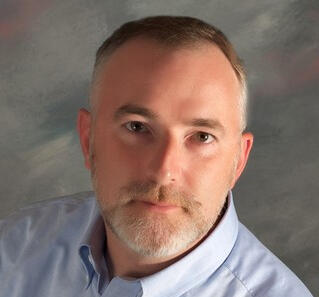
Jonathan Lasson, Psy. D.
Where are you located? What are your credentials?I am located in Pikesville, Maryland. I am a Maryland Certified School Psychologist and a Psychology Associate working under Dr. David Michelson.What is your theoretical orientation? Why did you choose that orientation?I like to consider myself an existentialist/humanist. I am a big fan of Irvin Yalom and Rollo May. I do borrow from other orientations so some would refer to me as eclectic or my preferred term, “out of the box.”What is a mental health “golden nugget” you can give over?Personalities in general cannot change and should not change. On the other hand attitudes, in general, can change and should change. People should understand that just because a person changes his or her position on an earlier belief, it is okay to adopt a new attitude. It does not necessarily mean that you are flip-flopping.What type of coffee do you enjoy best and how do you like your coffee?I personally really like the taste of The Coffee Bean coffee. I drink coffee every day, for better or for worse. I drink it with 2% milk and every once in a while I add a splash of toffee nut flavor.When/How did you first become interested in a career in psychology? Why did you choose your specialty?I am one of those odd people who knew exactly what he wanted to do since he was young. Having a father who is a very accomplished psychologist certainly helped inspire me to go into the same field. When I was working as a counselor at a sleepaway camp, the camp nurse, Mrs. Kestenbaum told me that I would make a great psychologist one day. Hearing that at the tender age of 18, cemented my decision. She saw that I was able to reach the kids who were the angriest and most oppositional. To this day my favorite population to work with is the ‘angry teenage’ population.What aspects of clinical work do you enjoy most and why?Aside from angry teens, I enjoy working with highly intelligent people who are trying to find meaning in their lives. The fact that they think too much makes them very challenging to work with and I like challenges. I also enjoy conducting assessments for learning issues and emotional disturbances.What aspects of clinical work do you least enjoy and why?Paperwork. The individuals to whom I submit paperwork, generally have certain ways of operating, which conflict with my written reports. They want certain things in the reports which does not feel very genuine to me. For this reason, I do not participate in any insurance panels. I feel bad for potential clients who would benefit from my services but cannot, because I do not accept insurance.What aspects of research are you most interested in and why?Guilt. I have always been fascinated by this topic and I believe that guilt is the root of most emotional problems that people face. Once you ‘uproot’ the guilt and allow people to live a more guilt-free life, you are improving the quality of their lives. I believe that is our main charge as therapists. To improve the quality of the lives of the people we work with.Do you work alone or are you a part of a group practice?I work alone. I like a certain amount of autonomy in my practice. No one knows your clients as well as the person who is spending hours upon hours of uninterrupted time with them. Of course, I believe that every mental health professional should have a colleague or supervisor to bounce ideas off but if you need to ask questions all the time, this may not be the right profession for you.What are your hobbies?I enjoy music, especially playing my saxophone. Unfortunately, a work-related injury caused permanent damage to my left index finger which compromises my ability to play. I also love to read non-fiction books and memoirs. I have an interest in martial arts and most sports.What do you do for self-care?Prayer and studying Talmud. I also enjoy staring at fish. I find it very therapeutic.
Do you have any published works?
I have written many ‘non-scholarly’ articles and in 2017 I published my first book entitled “The Guilt Trap and Other Tales of Psychotherapy”.My most recent book Out of the Cracks and Other Tales of Psychotherapy, was just published in October of 2022. This is my second book of psychotherapy tales. My first book entitled The Guilt Trap and Other Tales of Psychotherapy was inspired by the great tale writer, Irv Yalom, but more importantly, my clients. Over the years, my clients have shared with me their innermost thoughts and experiences that have caused them a great deal of psychological conflict. Telling over their stories has allowed readers to understand the process of psychotherapy with ordinary cases as well as some very challenging cases.The feedback I received from the first book was overwhelmingly positive and I thought that it would be important to share more stories. This second book features ten stories while the first one featured twenty stories. The reason for this is because I wanted readers to get to know the clients with a richer presentation and description of who they are as people and not just clients. Therefore I made every attempt to make their personalities come more alive to the readers. Every story is different as no two people are the same and no two stories have similar features. This is the beauty of our profession. As in the first book, I had to greatly embellish the stories to protect the identities of my clients. Although some clients did not mind having their true stories told with all their identifying information, I understand that humans can change their mind and say they were not in a good frame of mind when they gave permission. This is perhaps the most challenging aspect of writing psychotherapy tales.The clients I chose to write about were chosen at random for the most part. From time to time, I will revisit a client by leafing through their charts and reflecting on what went right and what could have been done differently. I would probably do the same if I were to write a third book.Currently, I am working on a more technical book that combines a Judaic story with a psychological analysis of that story. It is in the infancy stages but I hope to have it out to the public within the year.Do you have any book recommendations?“The Gift of Therapy” by Irvin Yalom
“Behave” by Robert Sapolsky
“Outliers” by Malcolm GladwellWho is your greatest inspiration?It would be reckless to not say, my father. He certainly inspired me in a very non-directive way. He modeled what he did and continues to live his life the same way he did fifty years ago. He is the most consistent person I know. I would be remiss if I did not include Rabbi Dr. Tzvi Hirsh Weinreb, and Lord Rabbi Jonathan Sacks, two of the deepest thinkers I have ever had the privilege to know.Get in touch with Dr. Jonathan Lasson here:
Web: www.doctorjonny.com

Lauren Rivers, LPC, CTP
Where are you located?I am at a small private practice called Renew Art Therapy and Counseling in Fairfax, VA.What are your credentials?
I am an LPC in VA with my M.S. from Johns Hopkins University. Additionally, I am a CTP, certified trauma professional with the IATP (International Association of Trauma Professionals).What population do you work with and which disorders do you primarily focus on?I work primarily with children, adolescents and young adults, although I truly enjoy working with all ages. I focus on trauma (attachment, relational, circumstantial, and occasionally complex trauma), but I also have an interest in OCD, self-esteem, depression and mother-daughter relationships.What is your theoretical orientation and why did you choose that orientation?My theoretical orientation is that of a strengths-based CBT approach, although as I gain more experience I find myself drawn to person-centered and narrative approaches as well.
I remember “selecting” for myself the strengths-based CBT approach in graduate school because I felt most connected to it in the sense that it allows the client to learn about and build upon their strengths, however little they may seem. Eventually, as I began working, I noticed that allowing the client to organically gravitate to what they wanted to work on in each session, left them feeling empowered and more trusting of their instincts. Sitting in this empowerment with my clients has been such a gift and one of my favorite things!What is a mental health “golden nugget” you can offer?A “golden nugget” I have to offer is that we all have negative self-beliefs that are bred from our experiences. They become entangled in everything we do. Sitting down with a therapist and properly identifying and labeling what yours are, and noticing when they’re interfering, is a really helpful first step or goal for yourself. Once you are aware of these, you can challenge them, create new positive self-beliefs and begin to rewrite your story.When did you first become interested in a career in psychology/therapy?I became interested in high school, and always enjoyed reading the textbooks we were assigned. In college, I knew if I had to get up at 8 AM for a class, it might as well be one that I won’t fall back asleep in — so I picked Psych and Human Development as my major. I subsequently became interested in counseling after realizing it was a fun combination between science and art, and it takes careful attention to detail, which I enjoy! The rest was history!What aspects of clinical work do you enjoy most?I most enjoy witnessing the gradual progress we see in our clients, and I especially enjoy it when our clients begin noticing it themselves! I also enjoy the sessions where I am welcomed into both the laughter and the tears of the client. There is something about those sessions that feels extra special to be a part of.Do you work alone or are you a part of a group practice?I am a part of a wonderful group! There are four of us in total. Jackie Sargent, the clinical director and founder of Renew has taught me so much and I truly feel lucky to witness and gain from her experience. She specializes in art therapy and sand-tray work. Lynda Yi specializes in marriage/couples and family, and has a wonderful CBT and strengths-based approach. Callen Jones, is a resident like myself, and specializes in art therapy for trauma and enjoys working with children and adolescents, too. I have learned so much from each of these women!Do you have any published works?Yes! I recently wrote, “Celebrate Your Feelings: The Positive Mindset Puberty Book for Girls”. It is available at Target, Amazon, and most bookstores.Amazon: www.amazon.com/Celebrate-Your-Feelings-Positive-Mindset
Target: www.target.com/p/celebrate-your-feelingsGet in touch with Lauren here:
Web: renewarttherapyandcounseling.com
laurenriverstherapy.com
Welcome To Our Giveaway Page!
This page will feature our current giveaways. Make sure to follow the instructions given to enter!
BOOK GIVEAWAY!
Win your copy of "Out of the Cracks" by Dr. Jonathan Lasson. This is the latest book in his 'Tales of Psychotherapy Series'. You can read more about Dr, Lasson's published works by clicking here.HOW TO ENTER
There are a few ways to enter this contest!
To enter on Linked In, go to linkedin.com/coffeewithdave
To enter on Instagram, head over to instagram.com/coffee-with-daveGood Luck!














